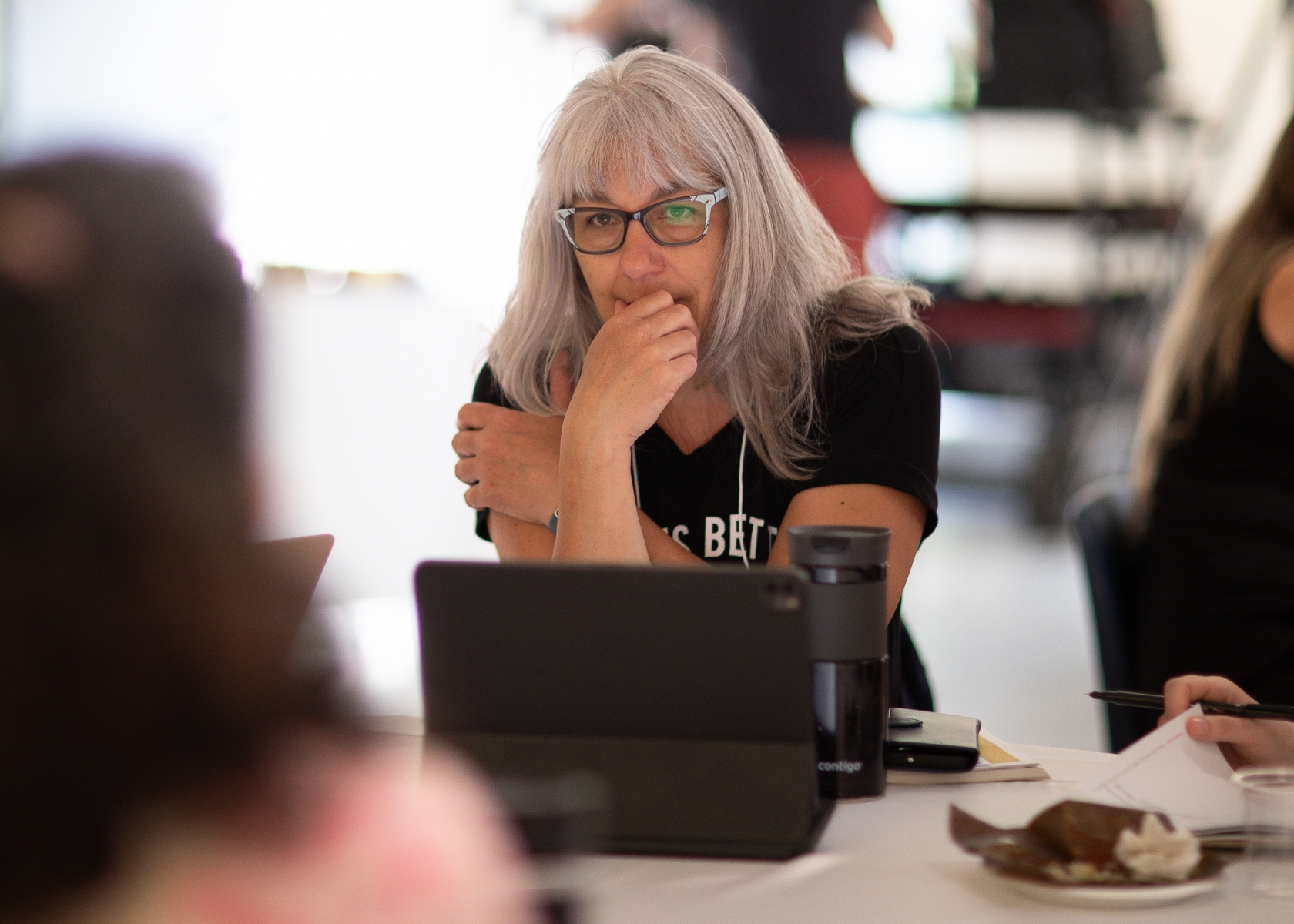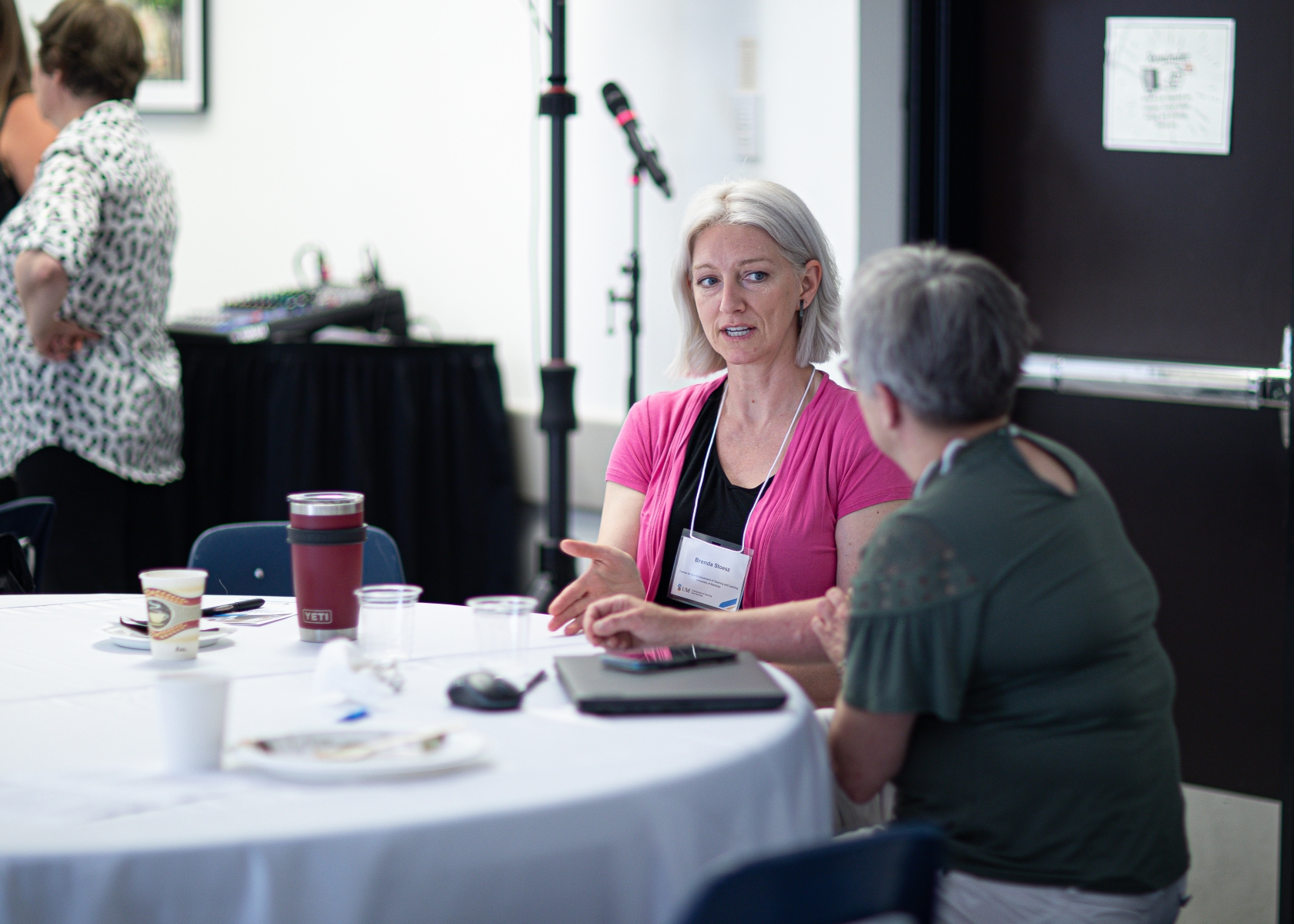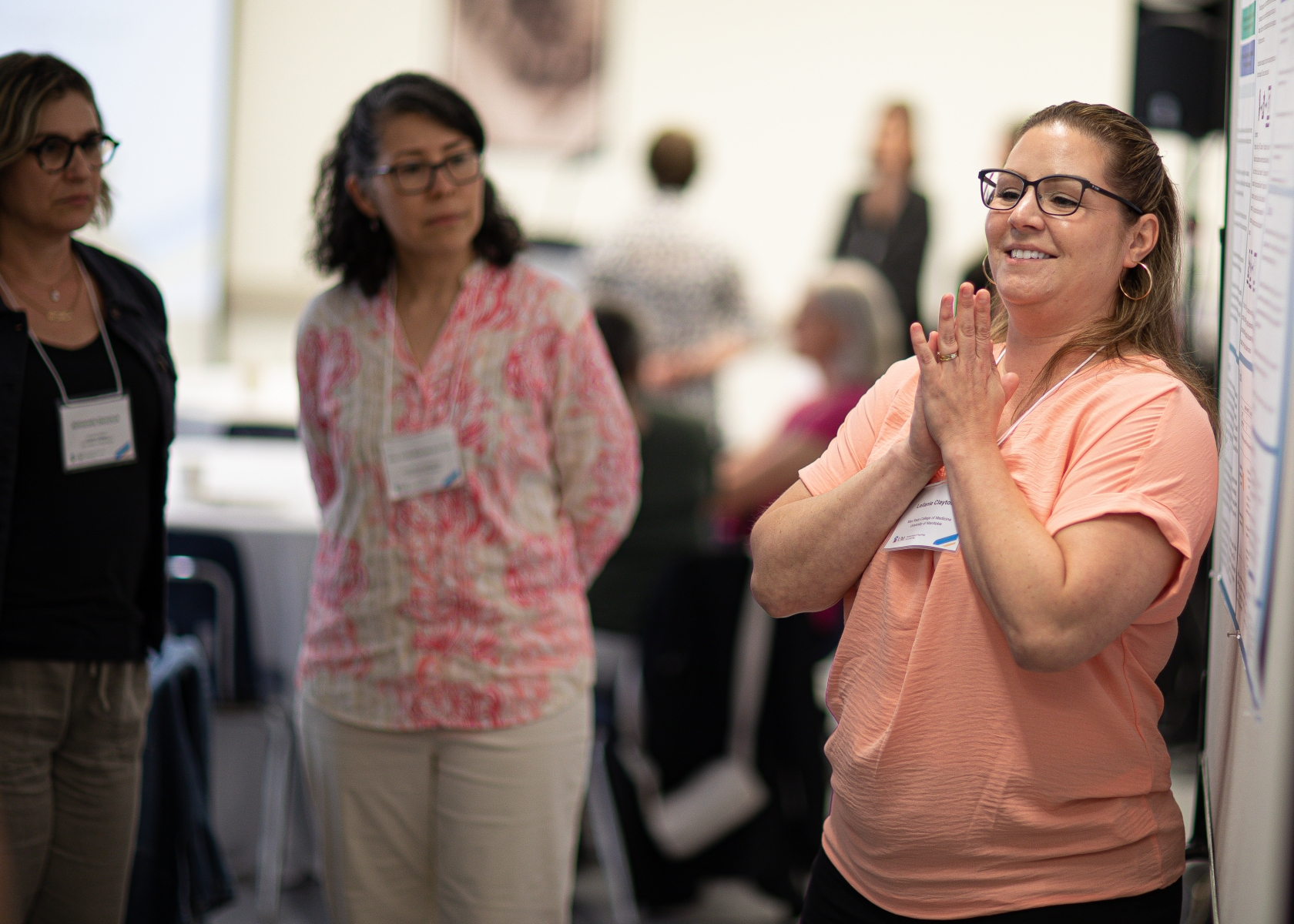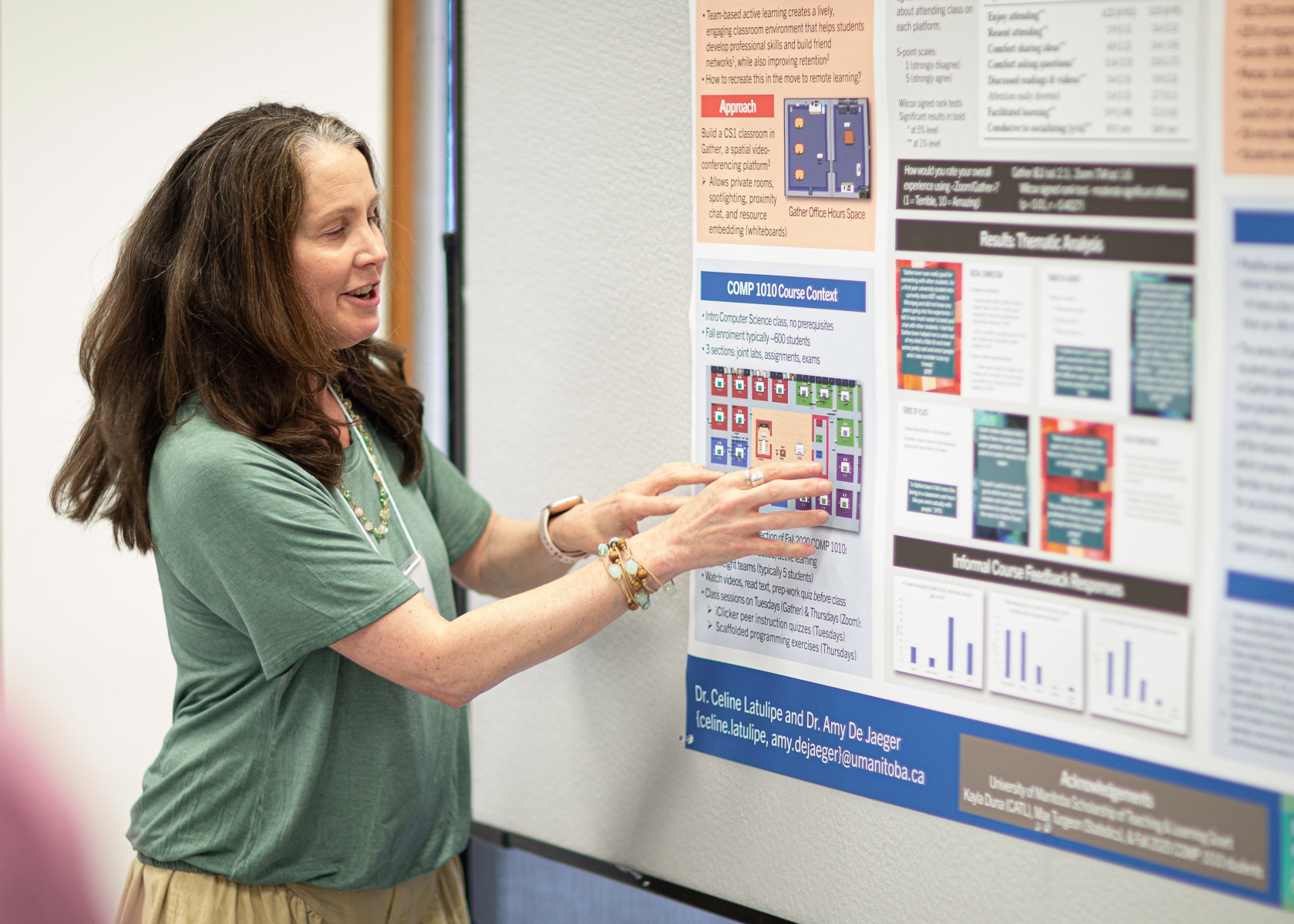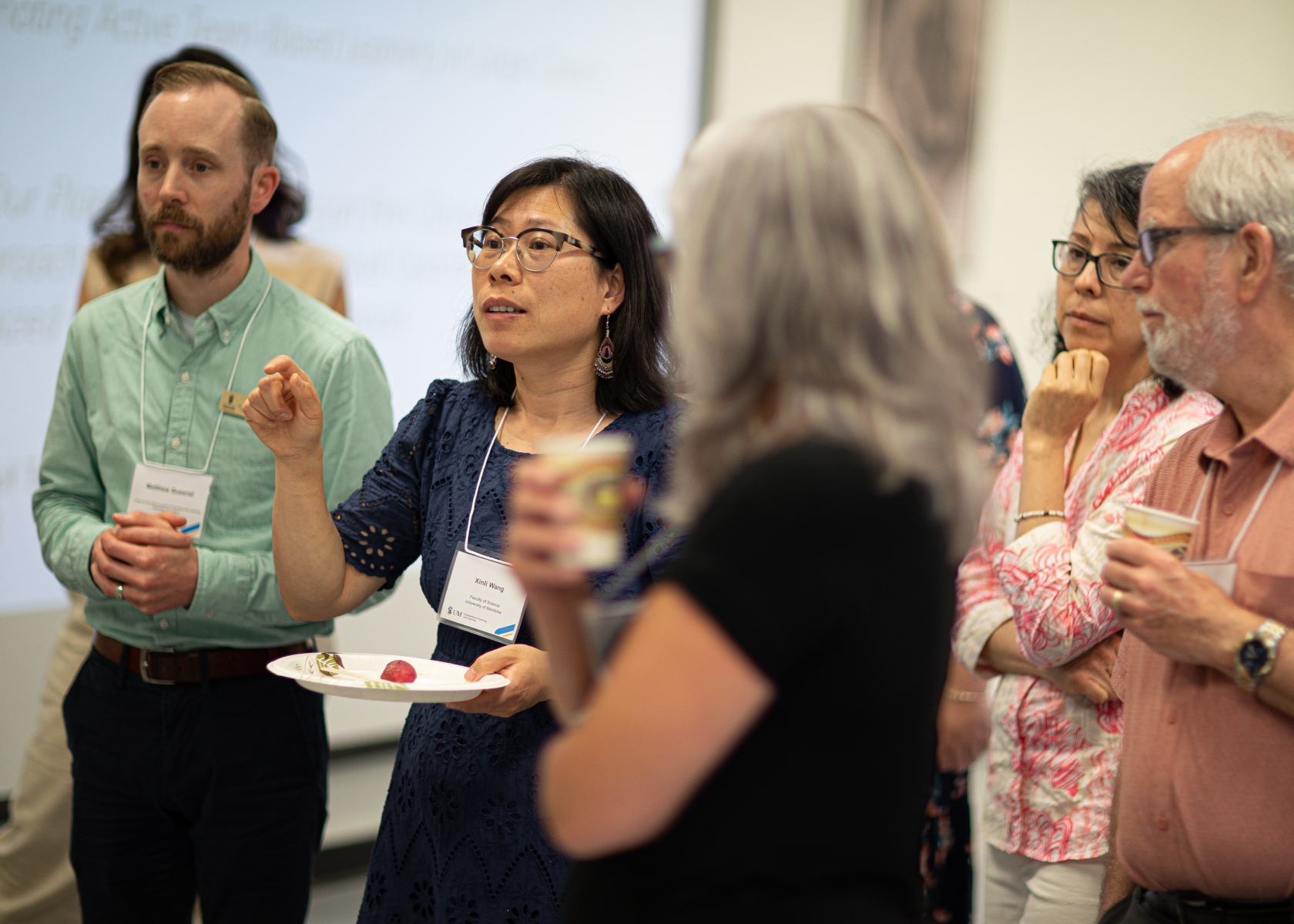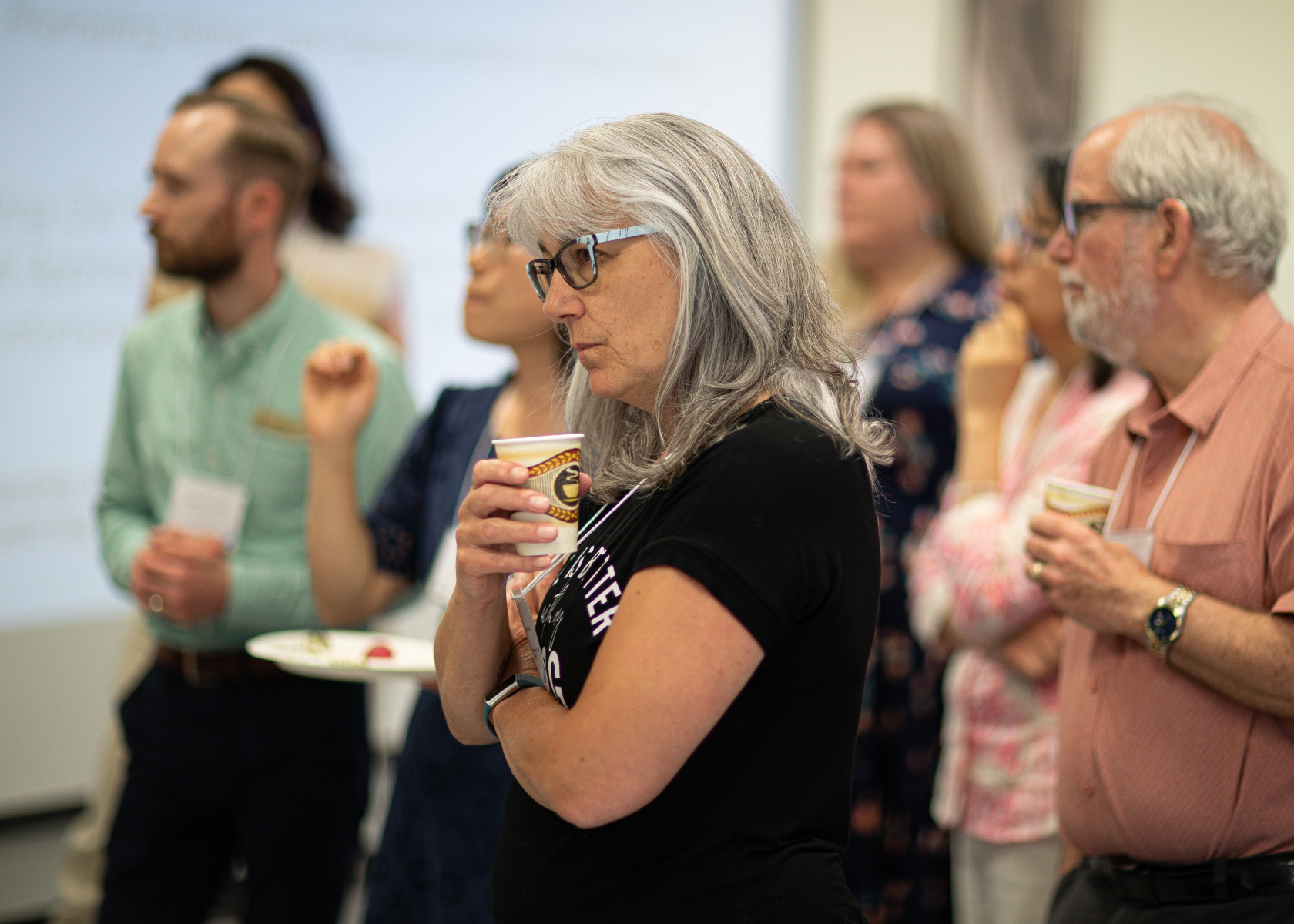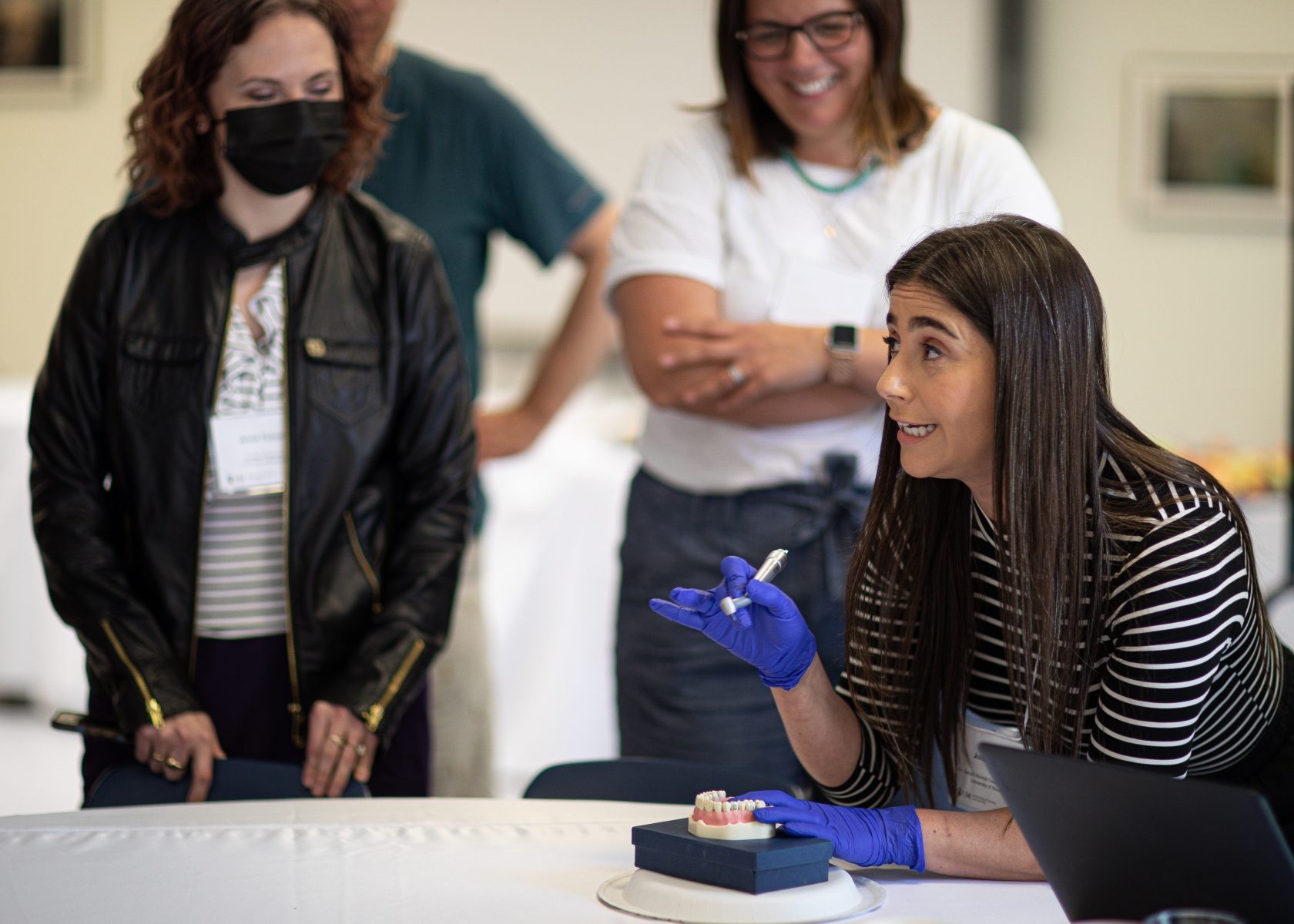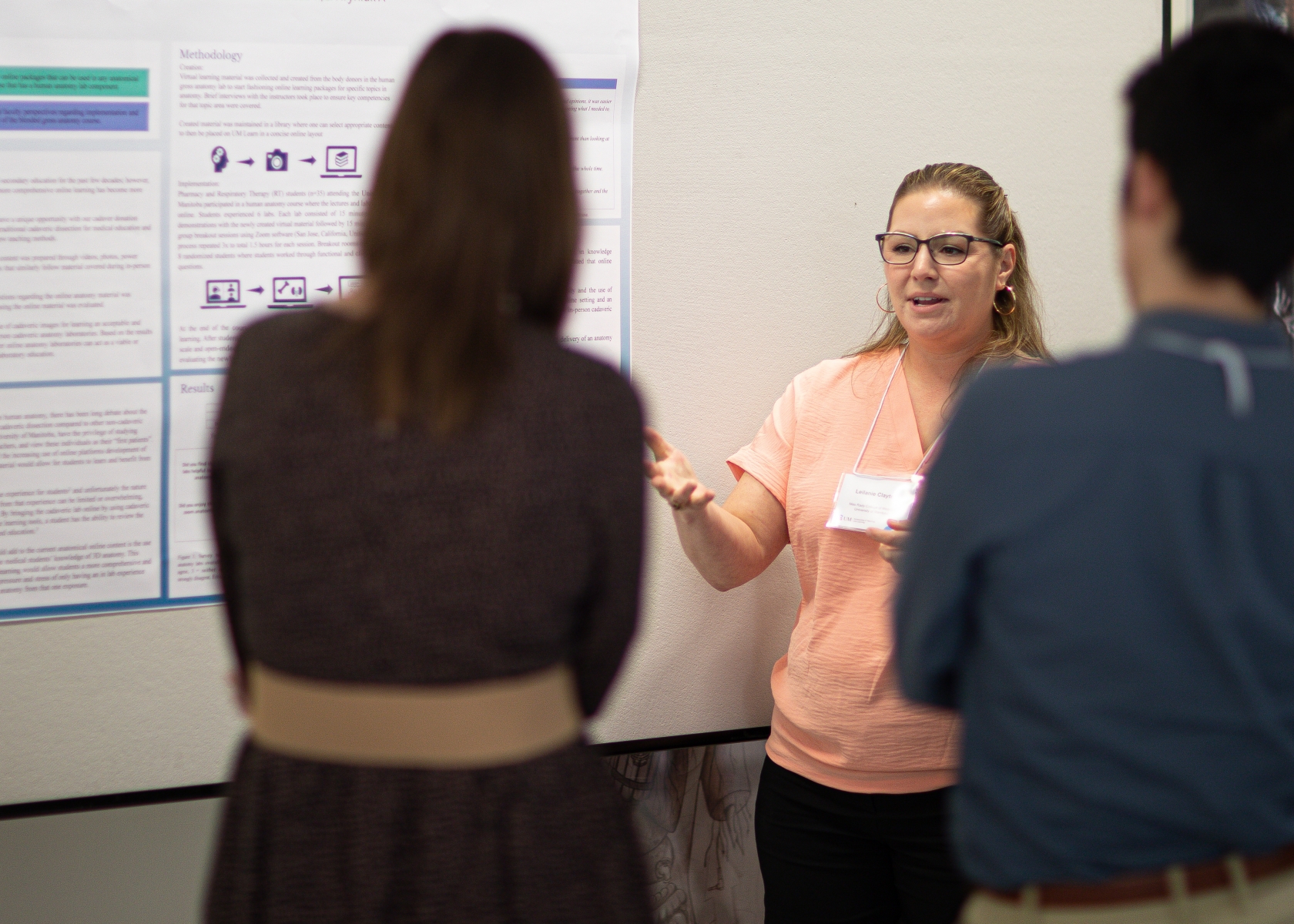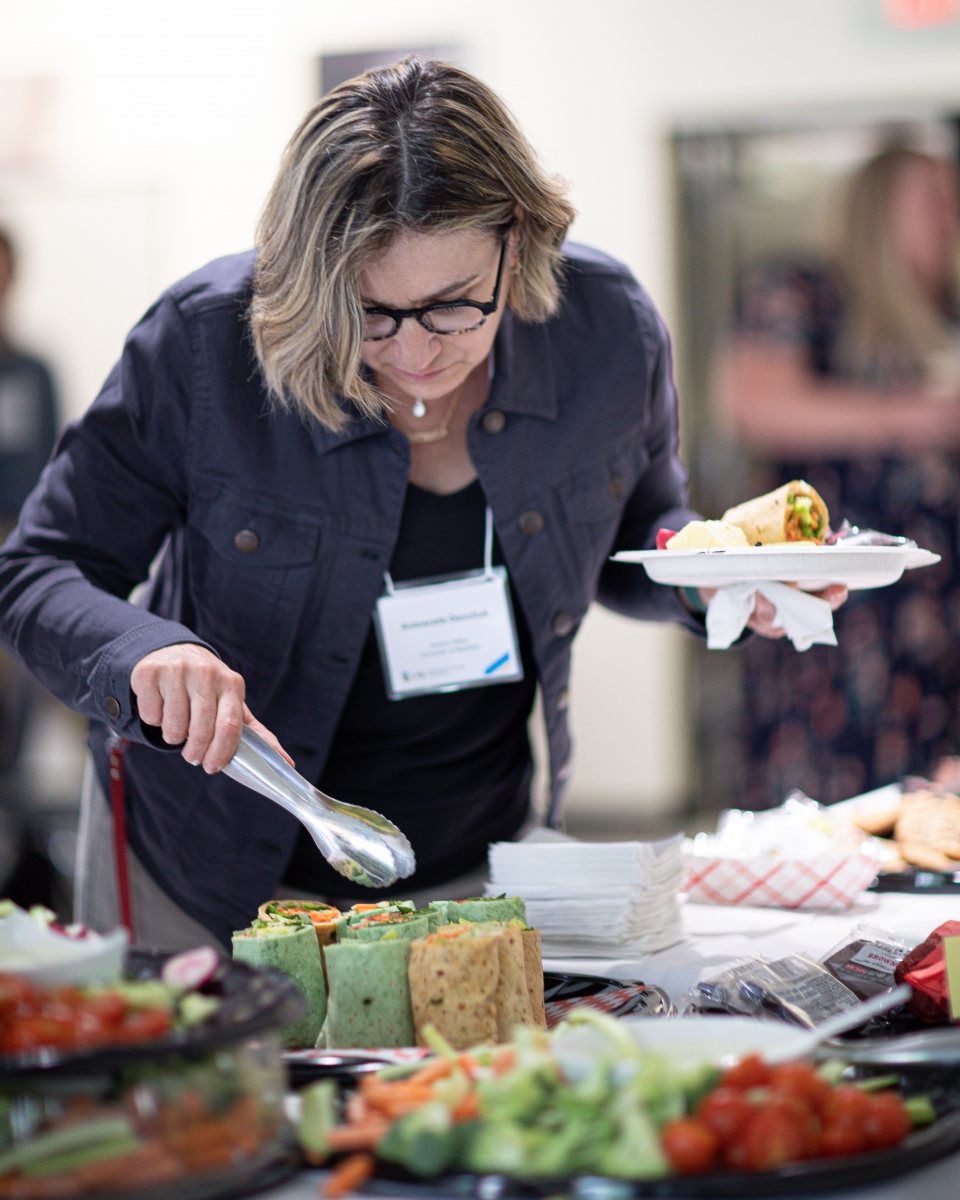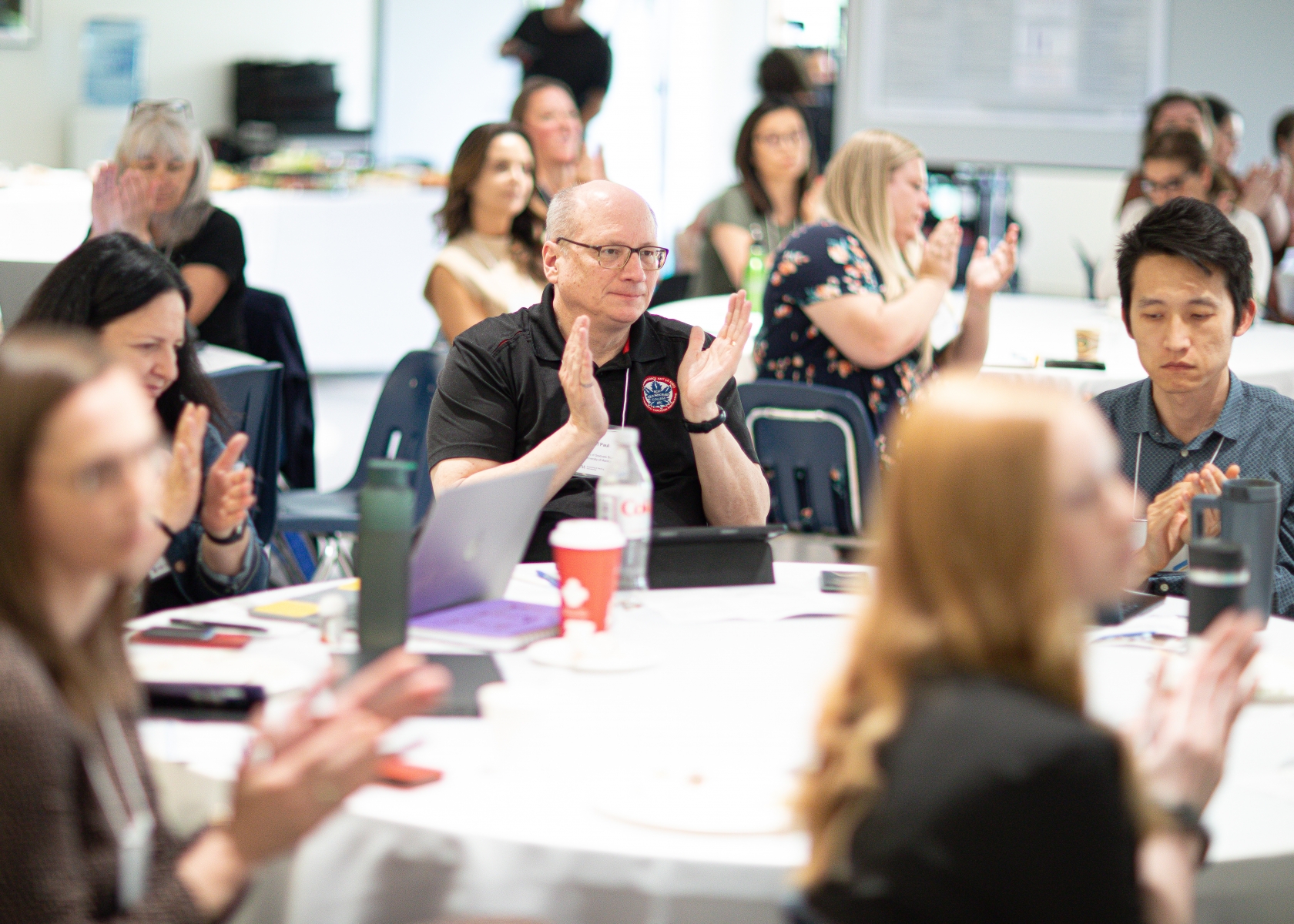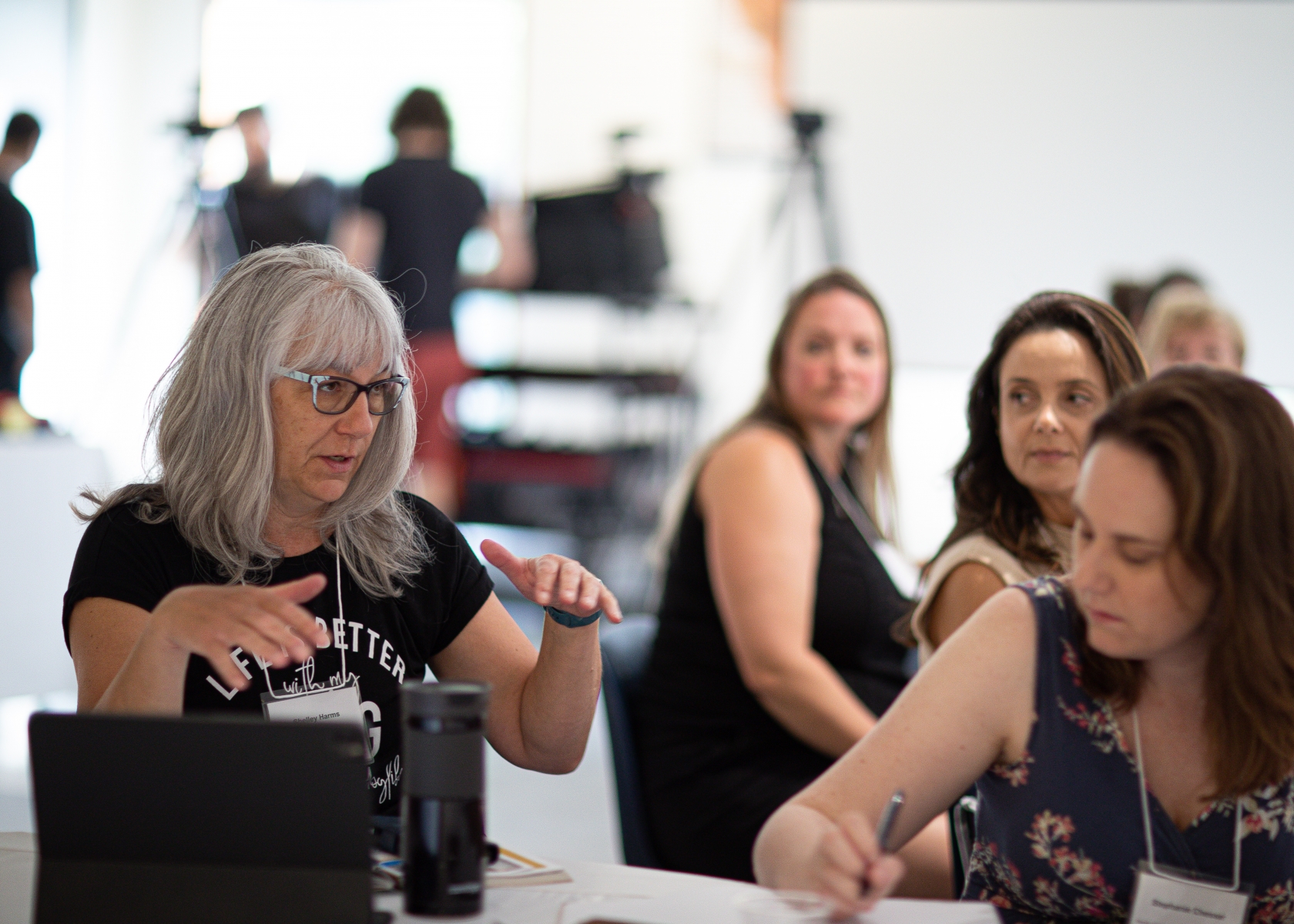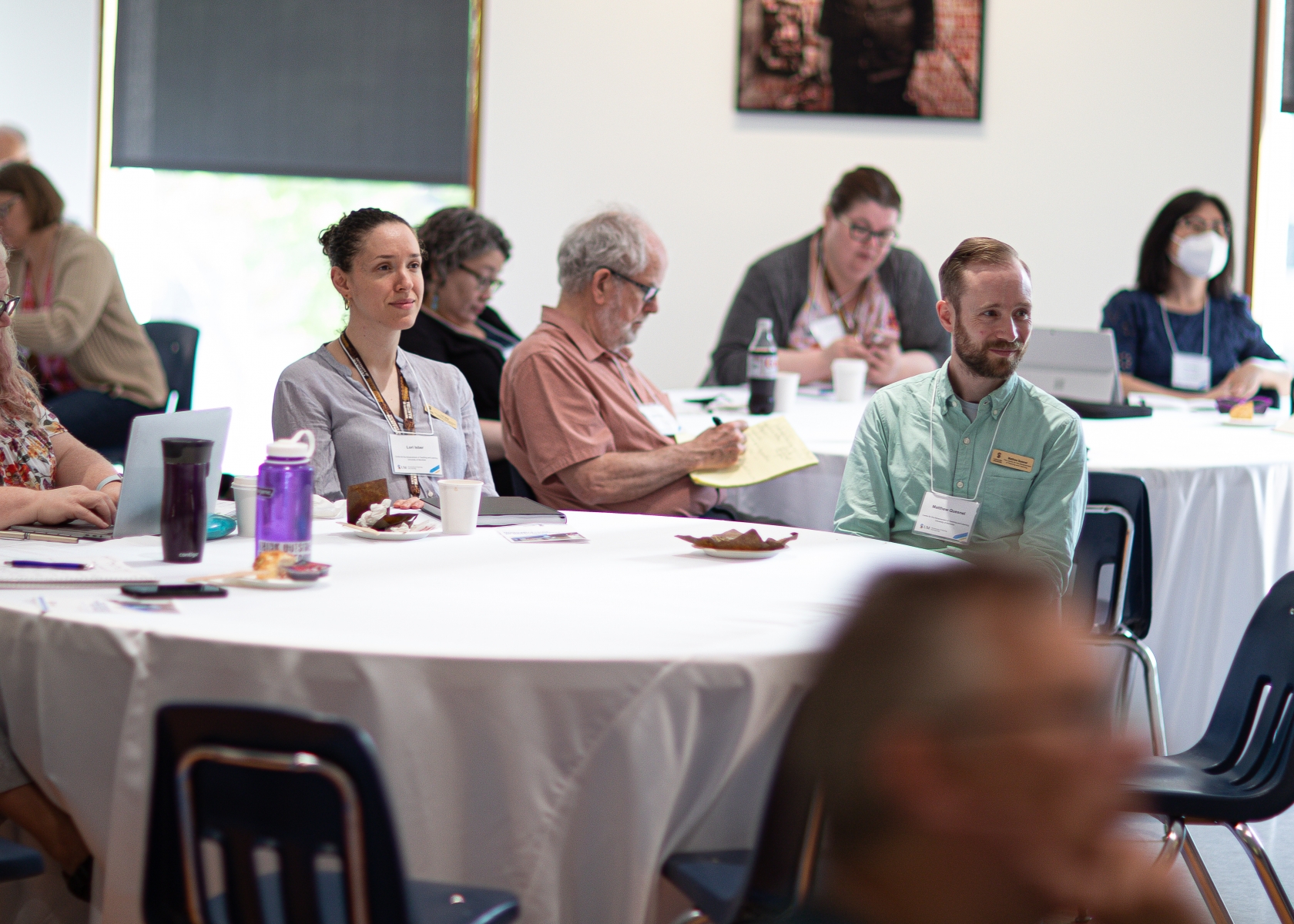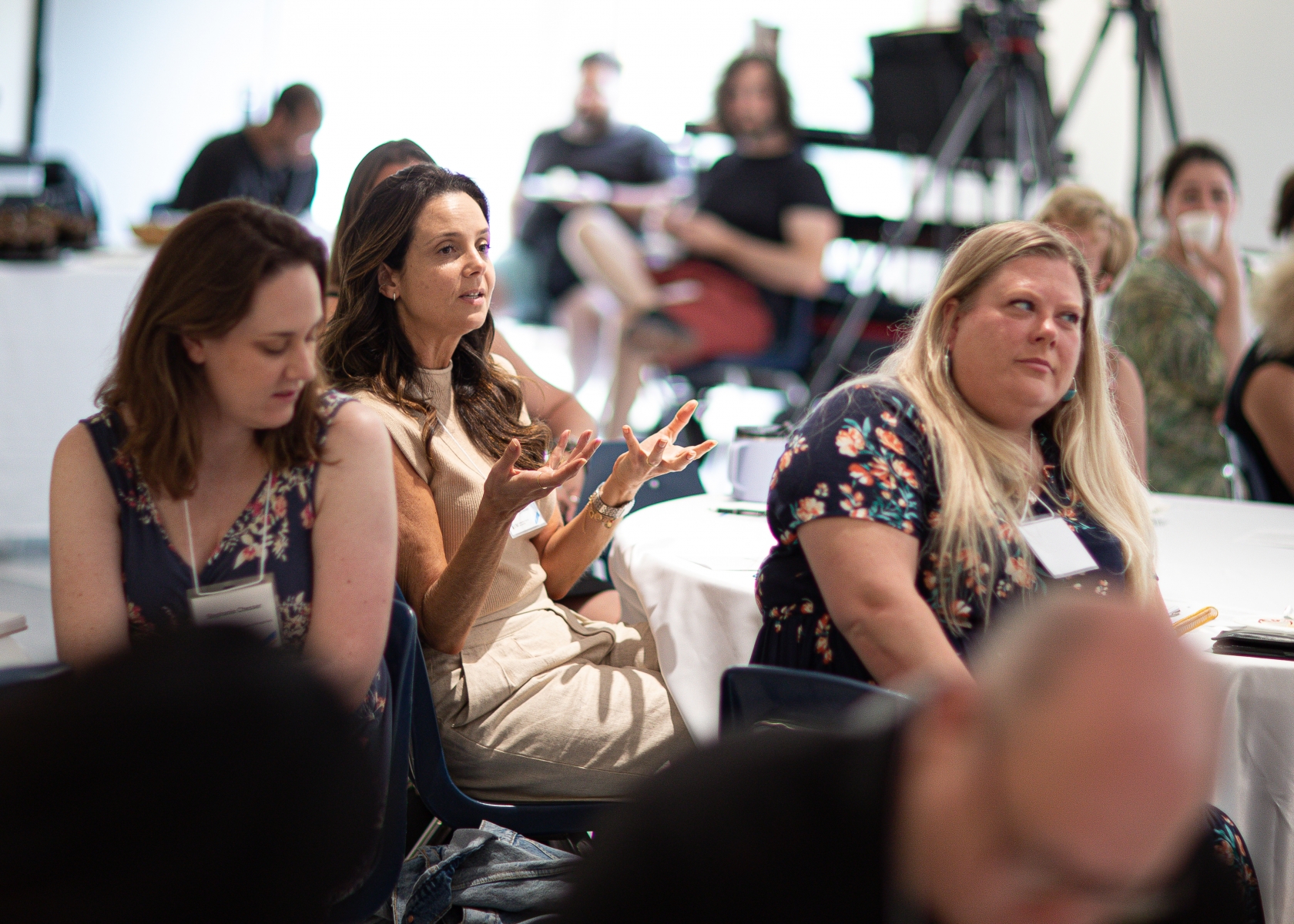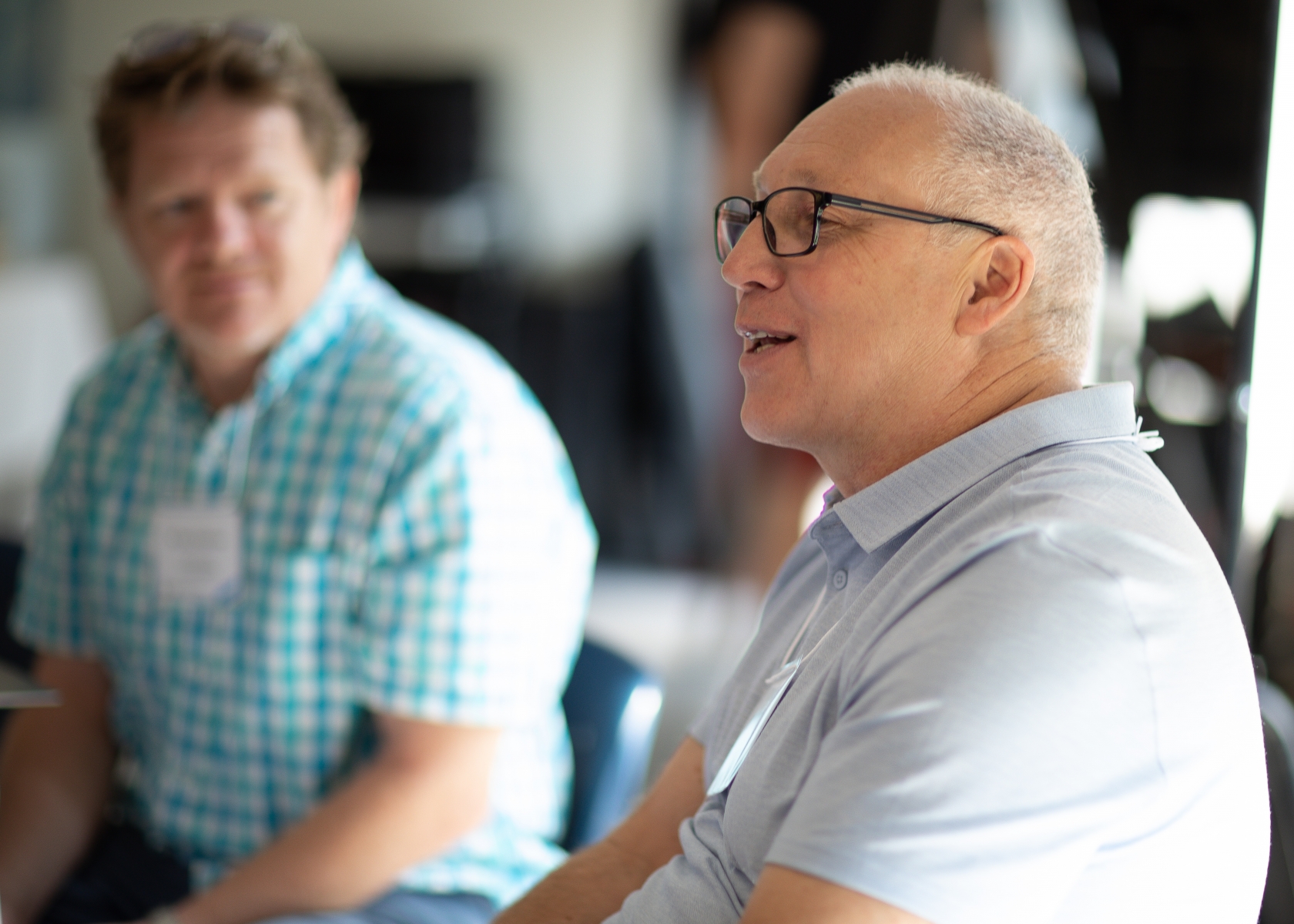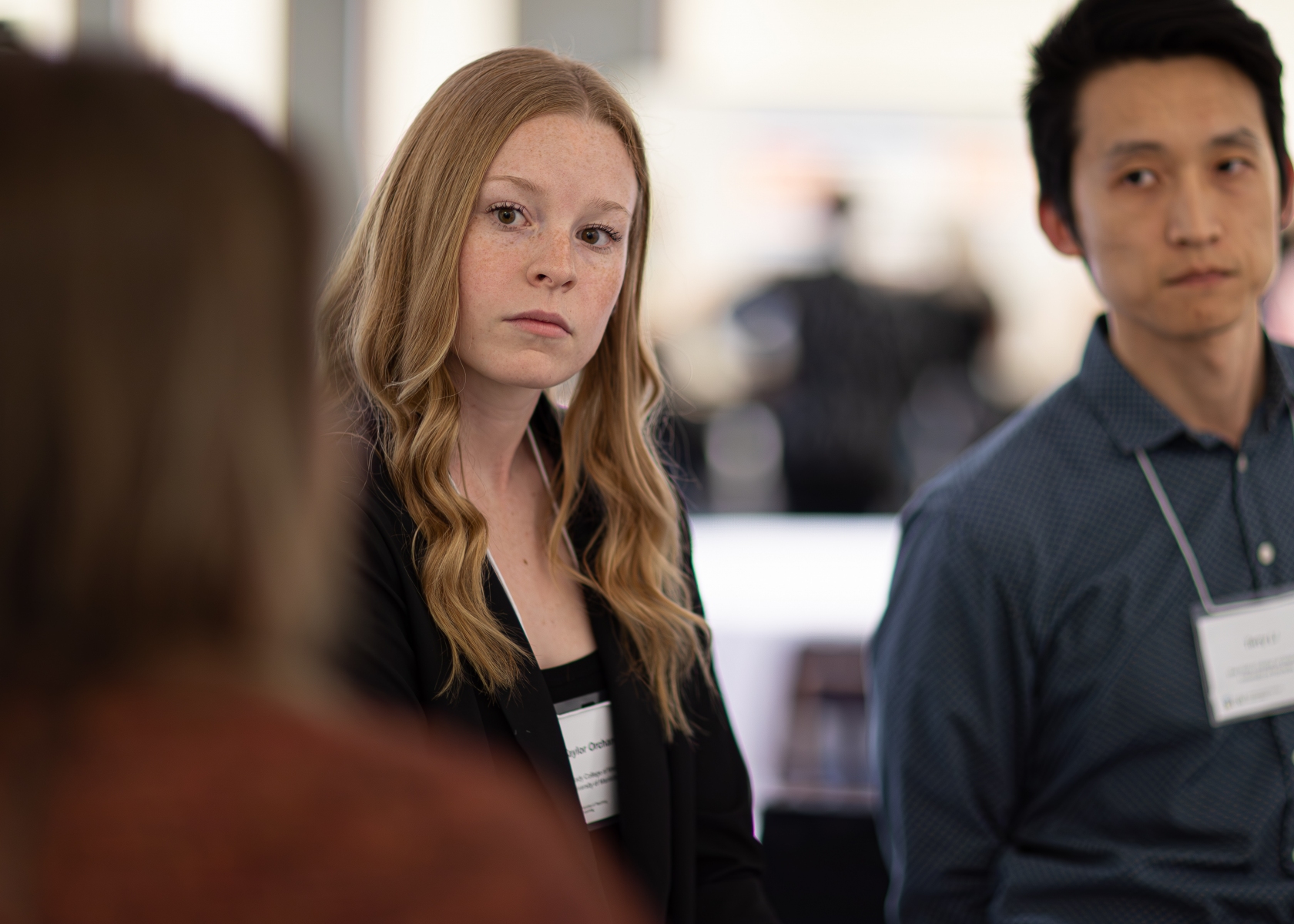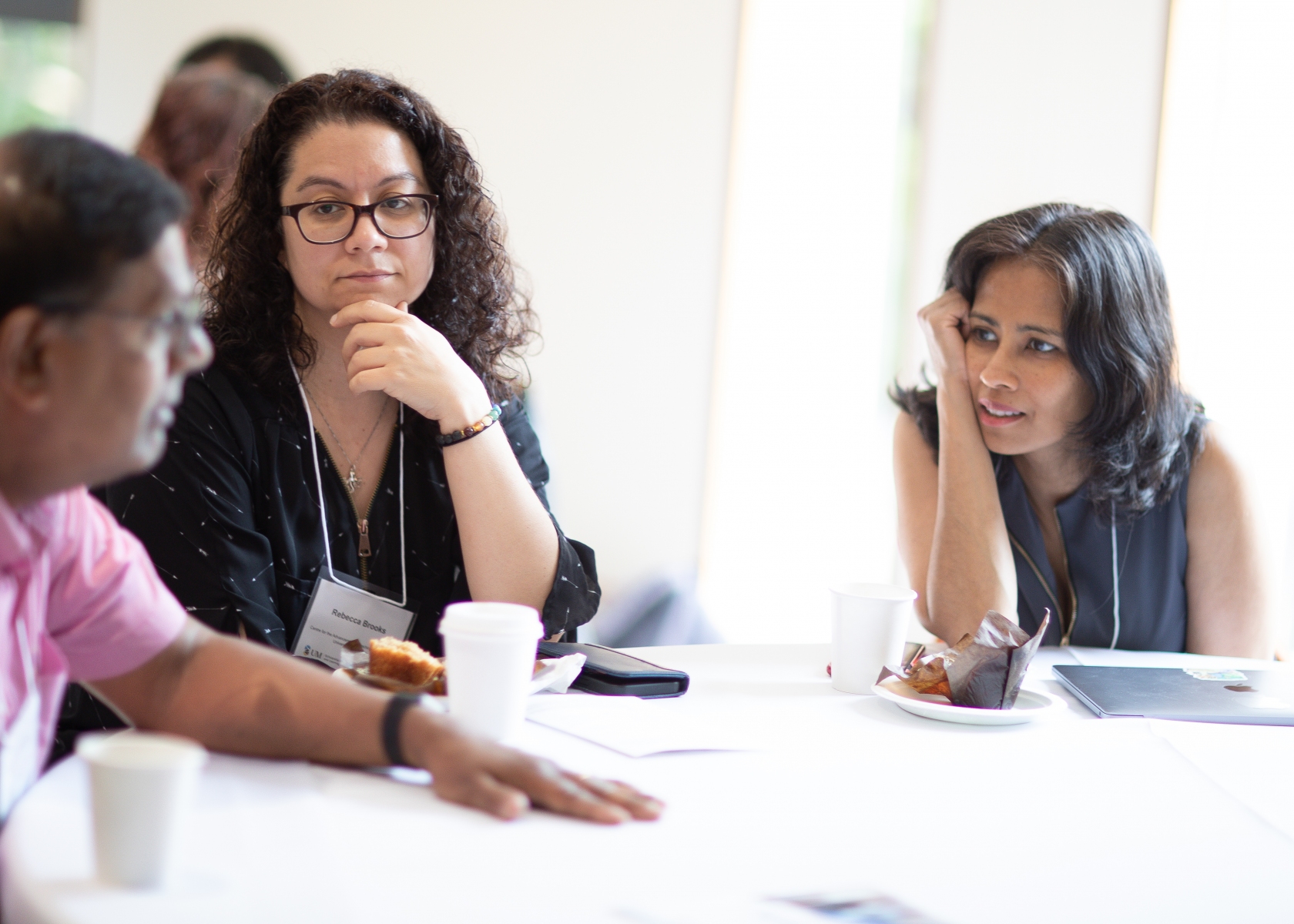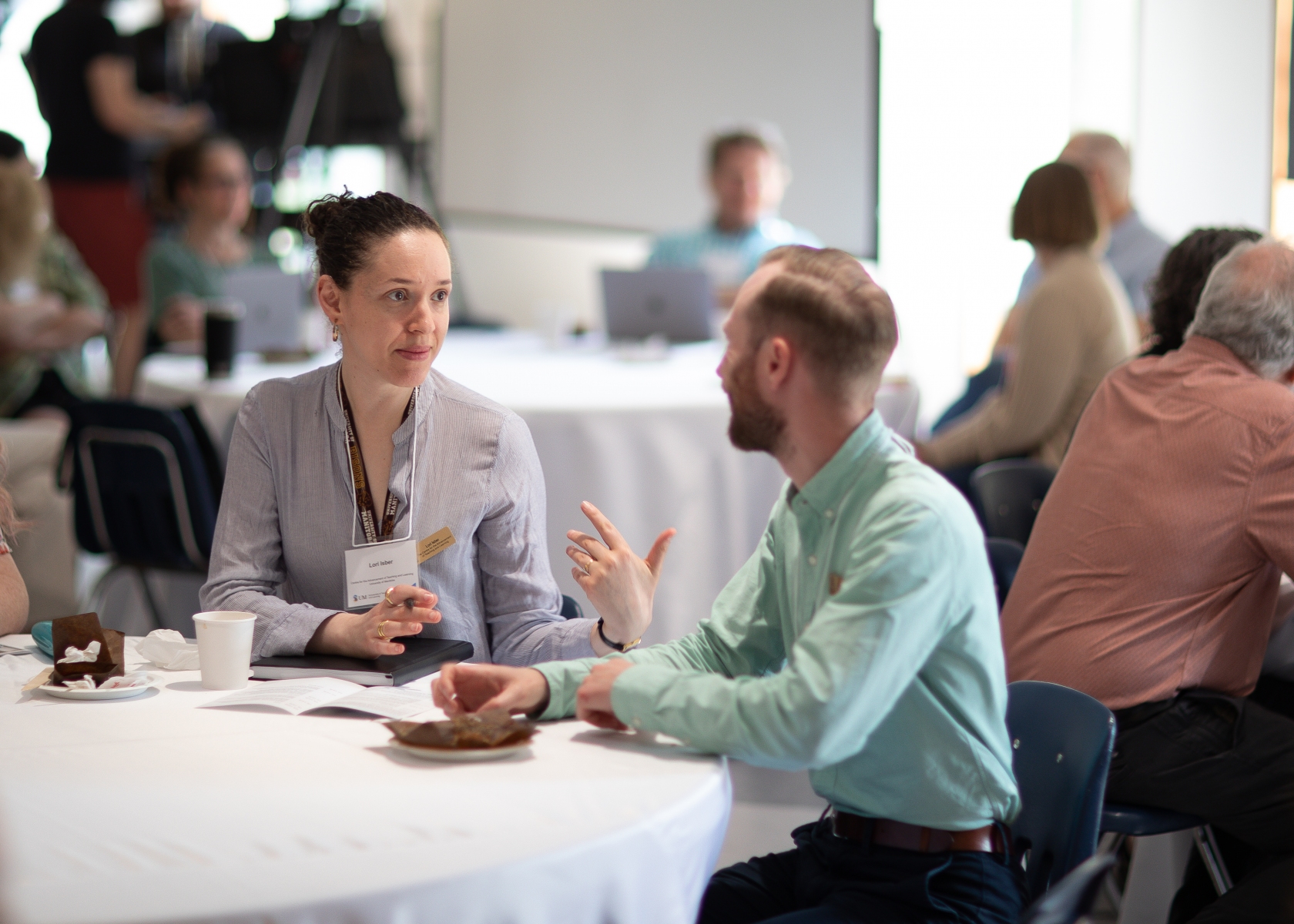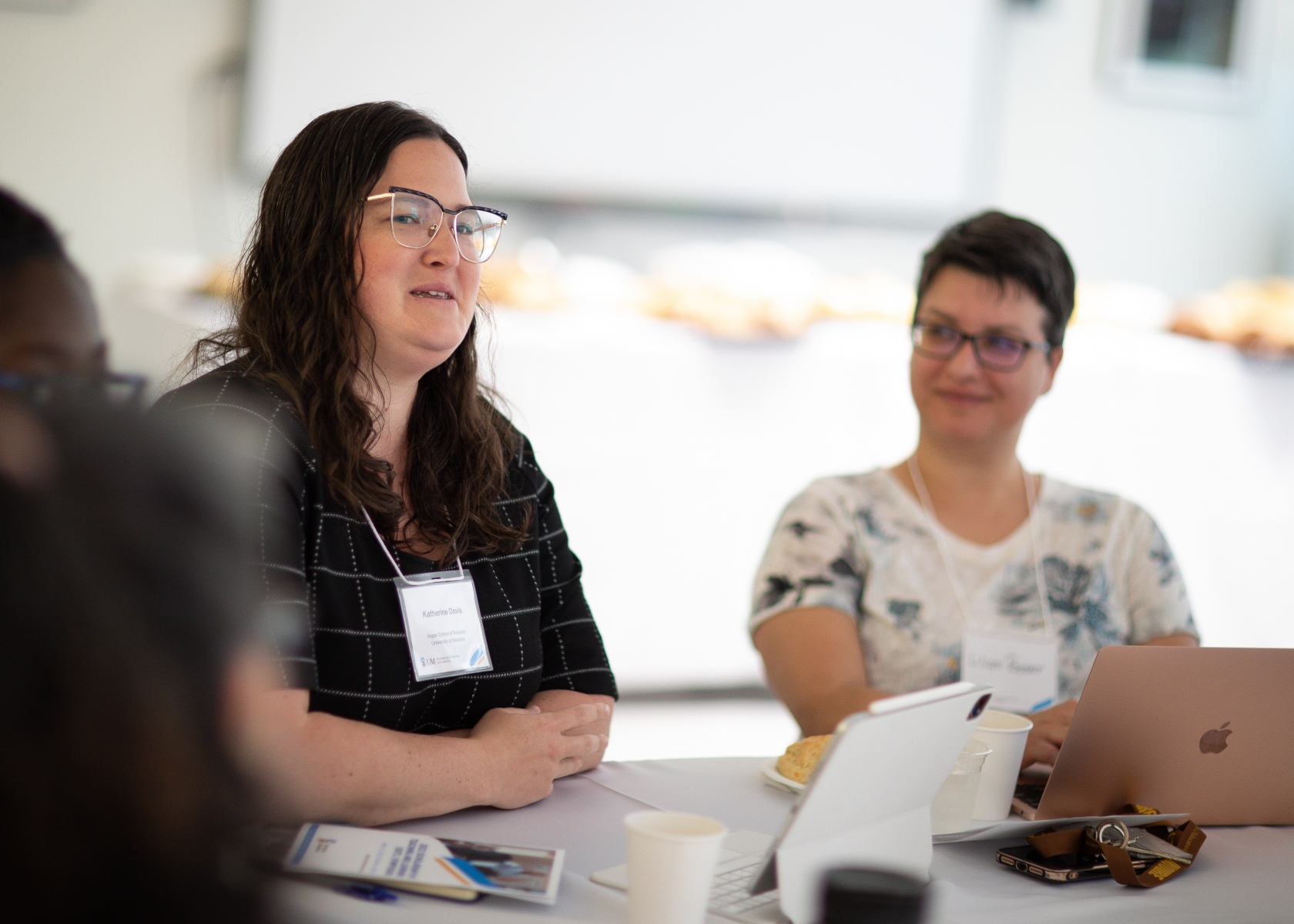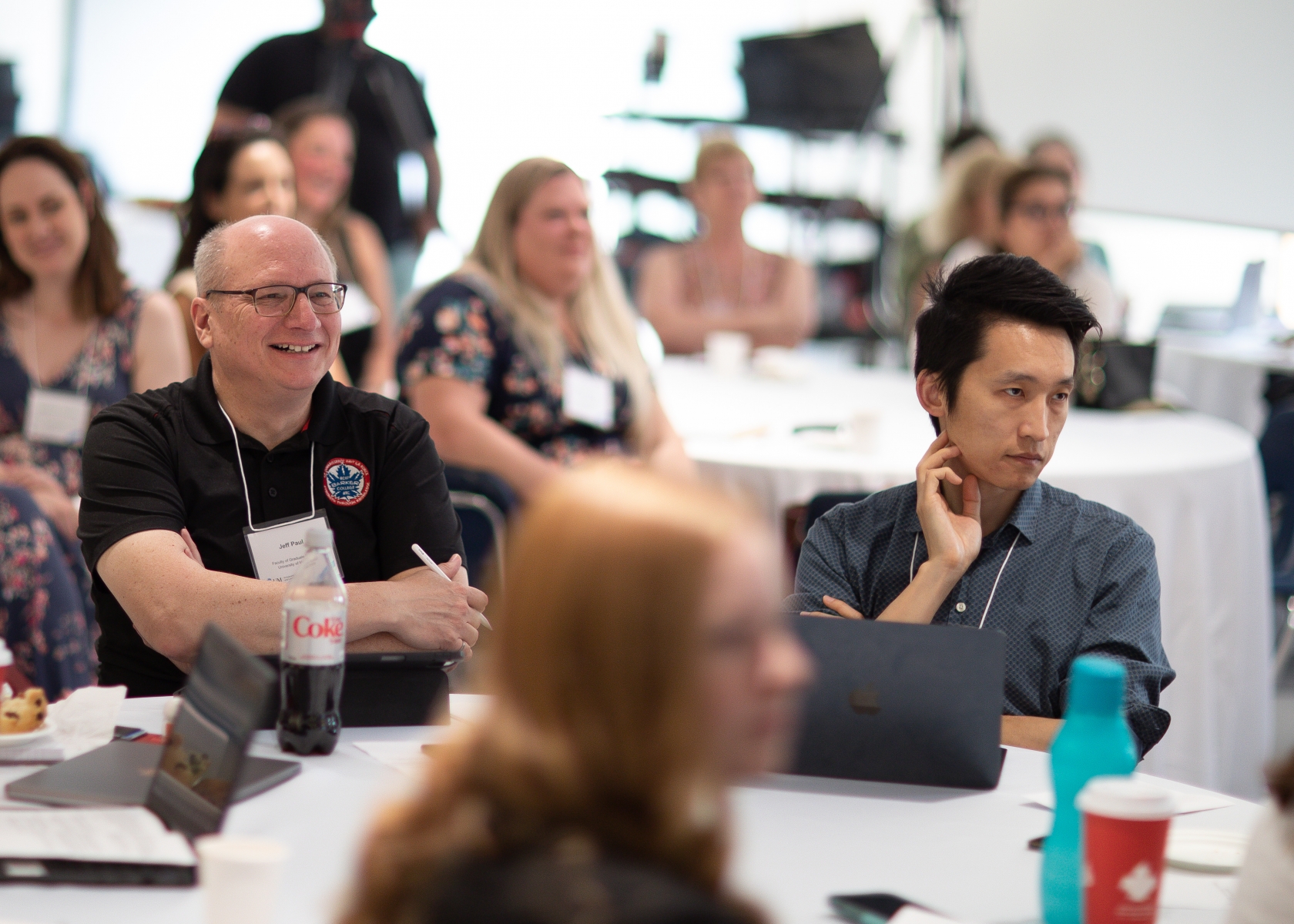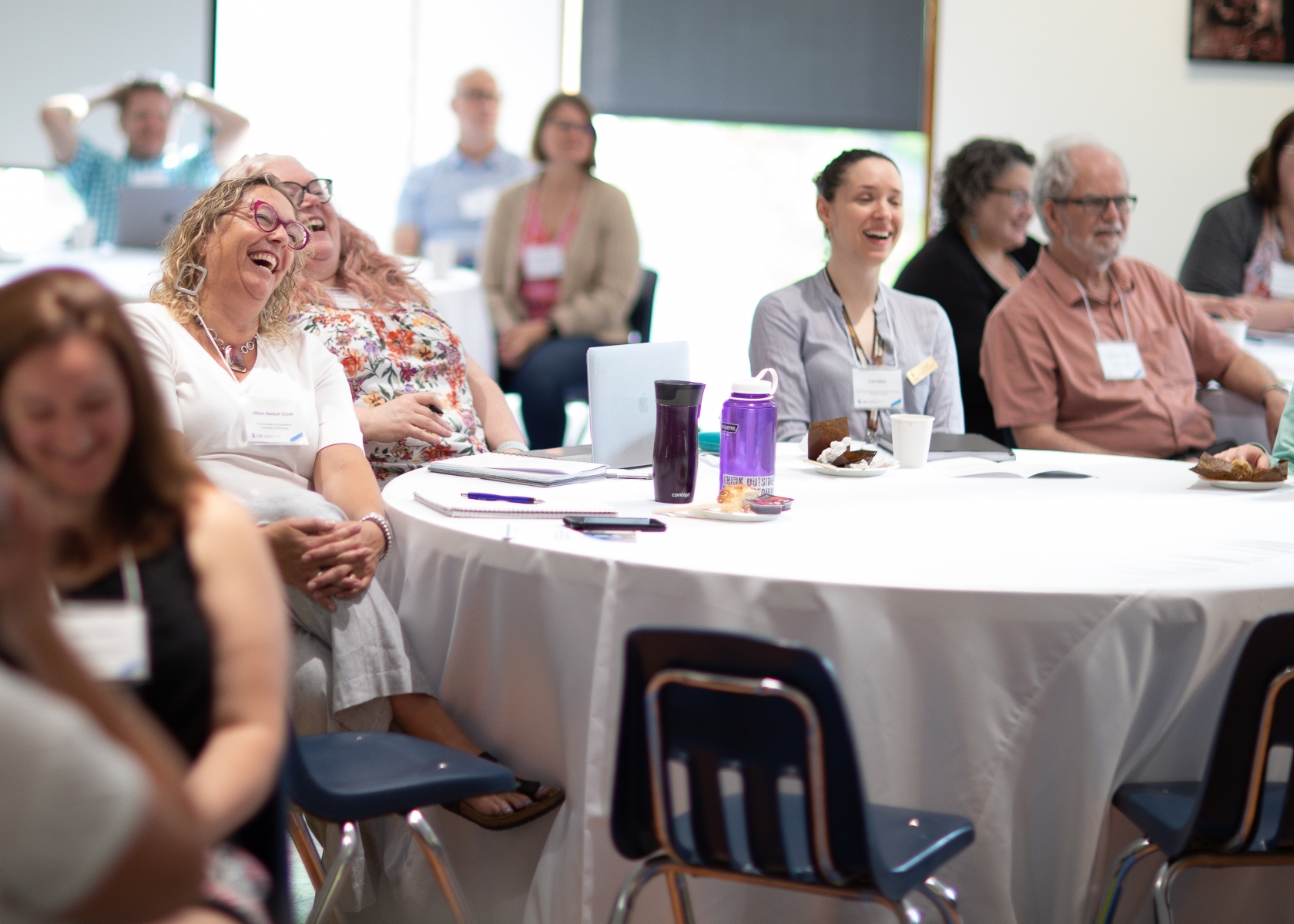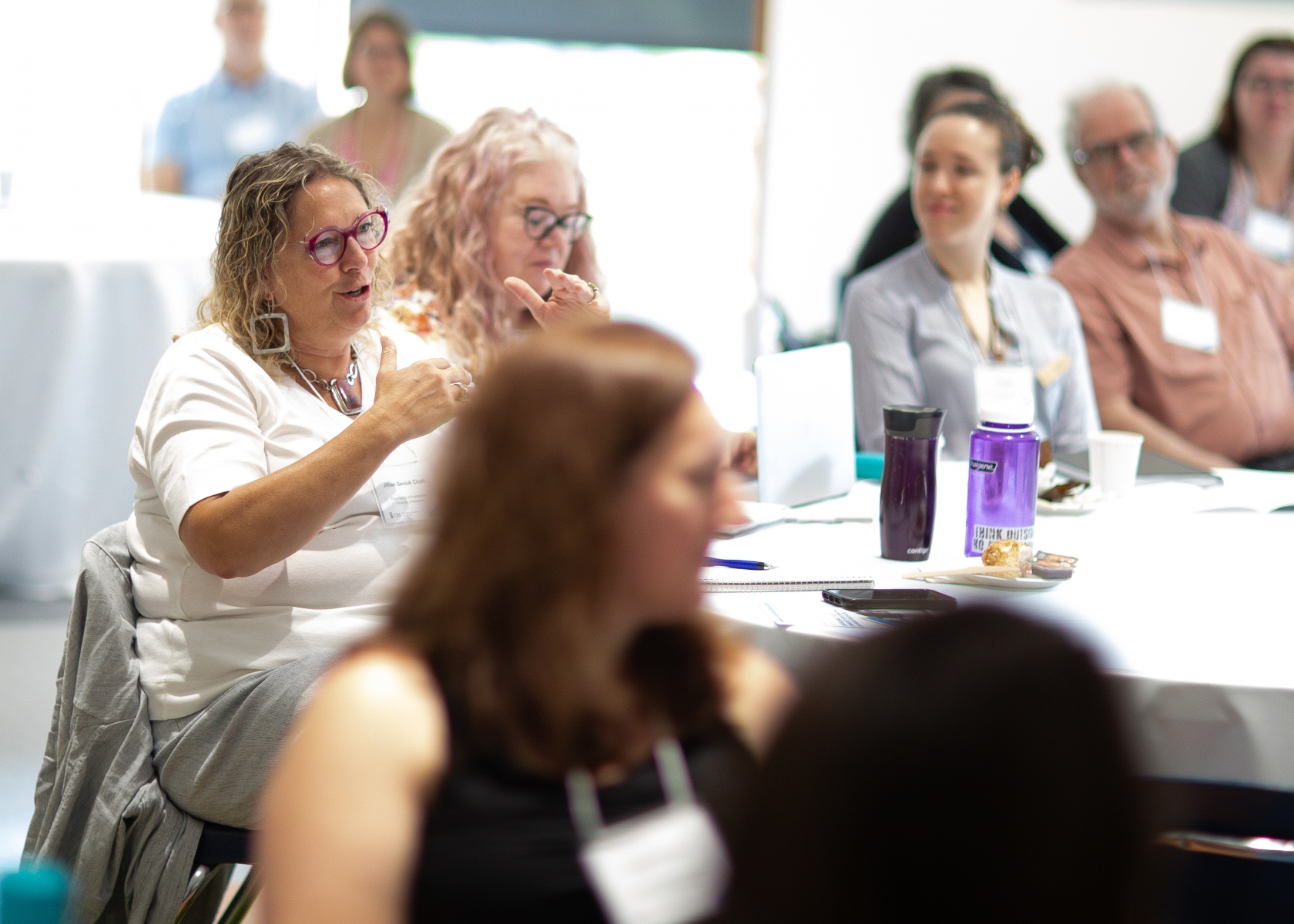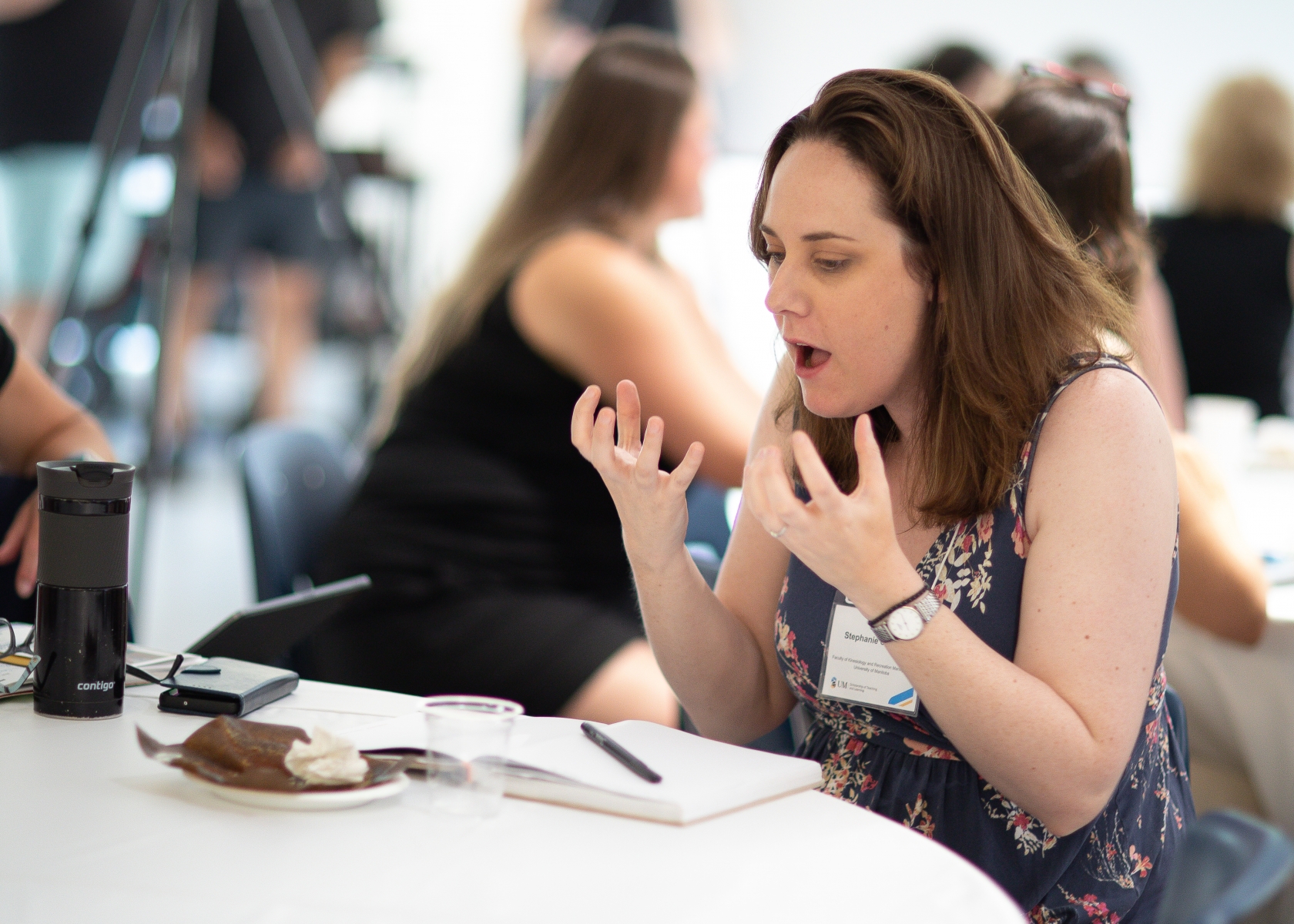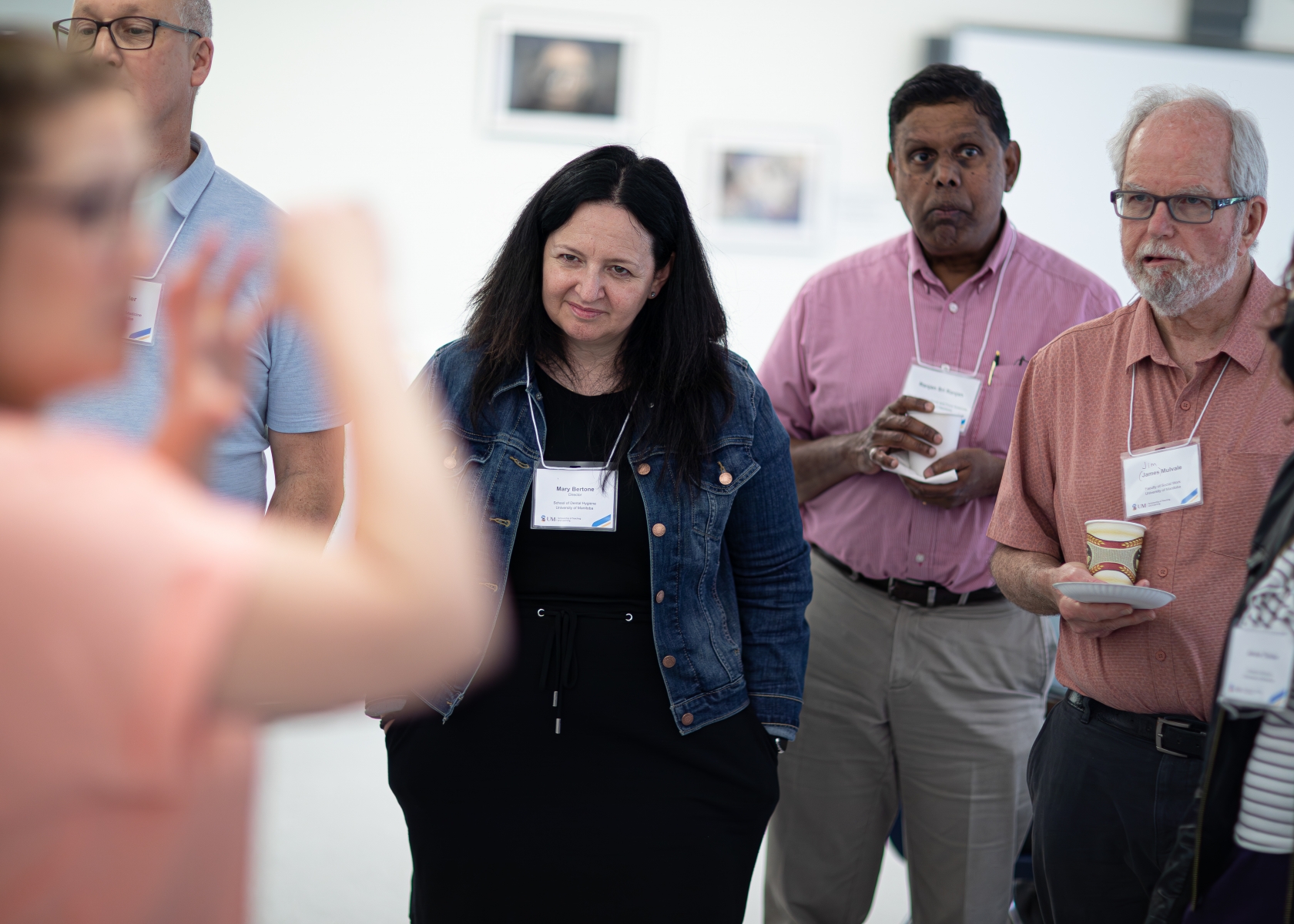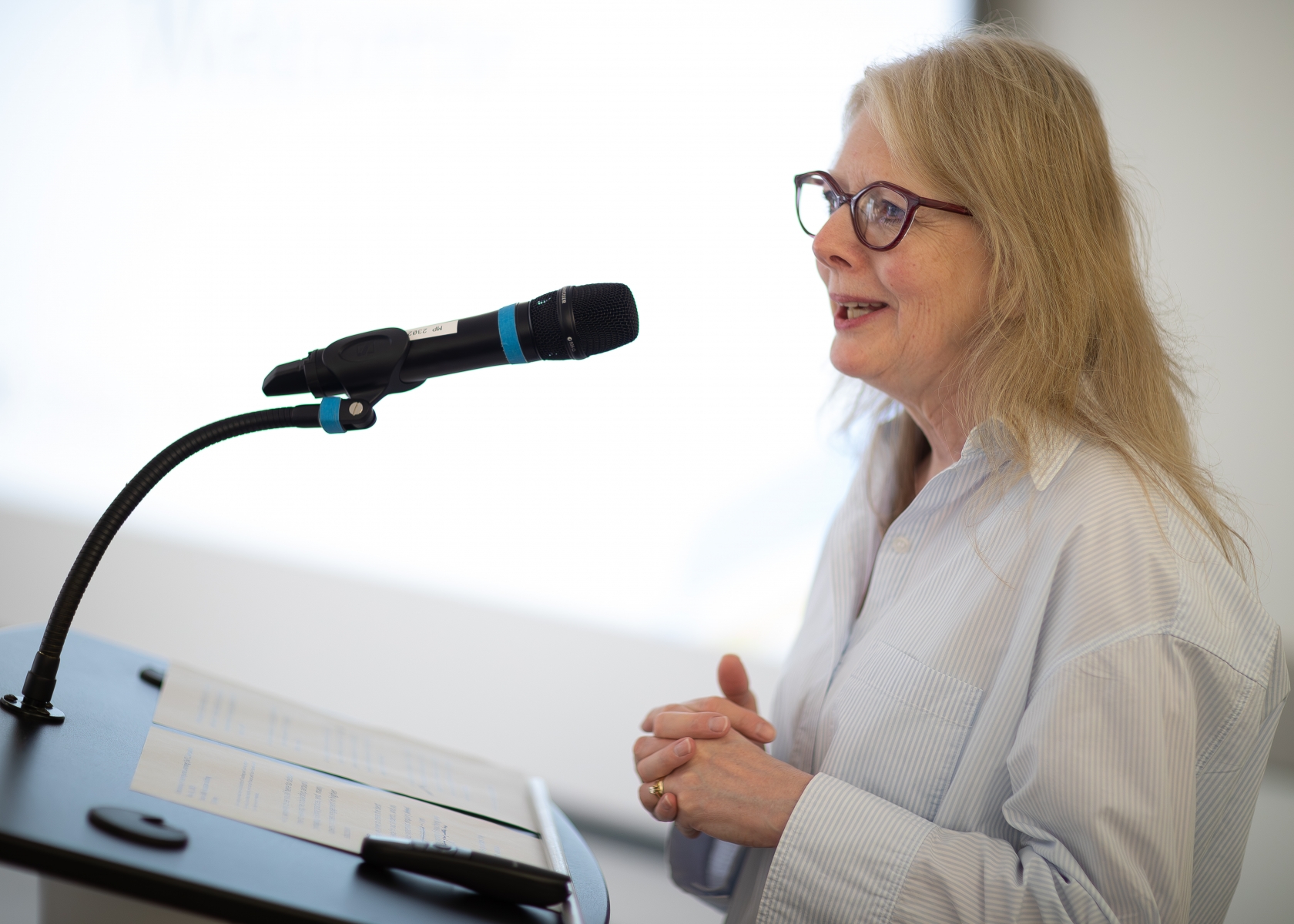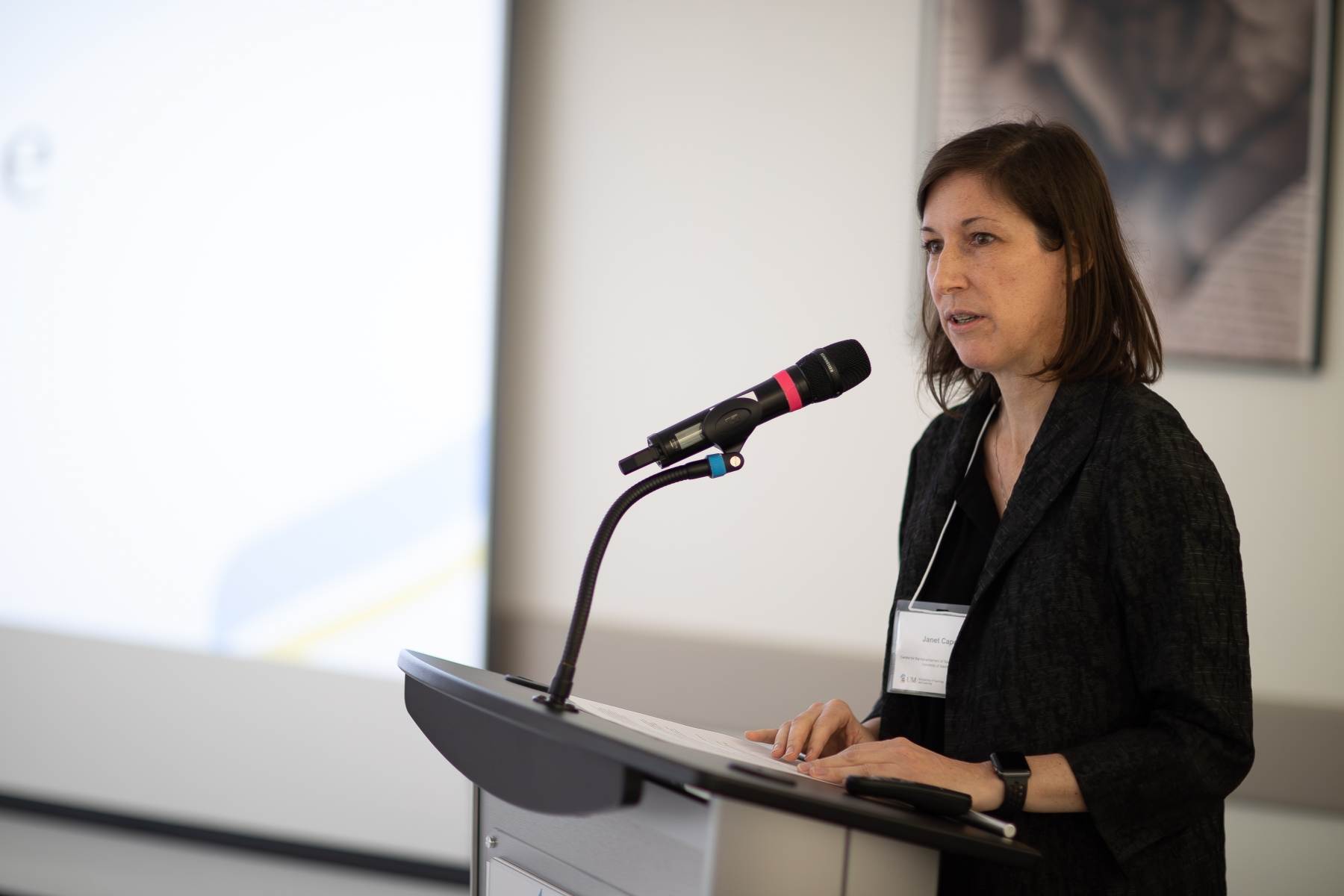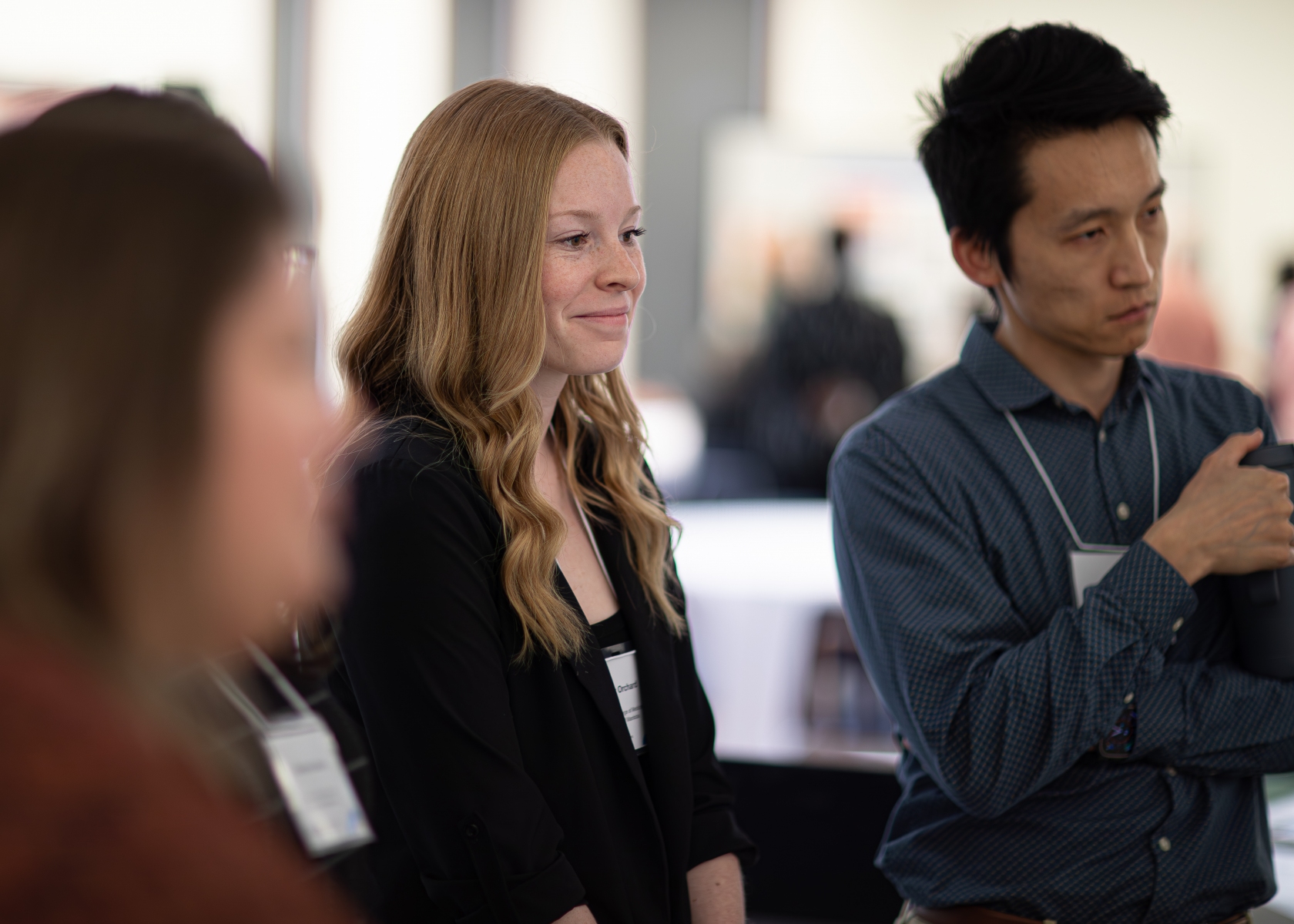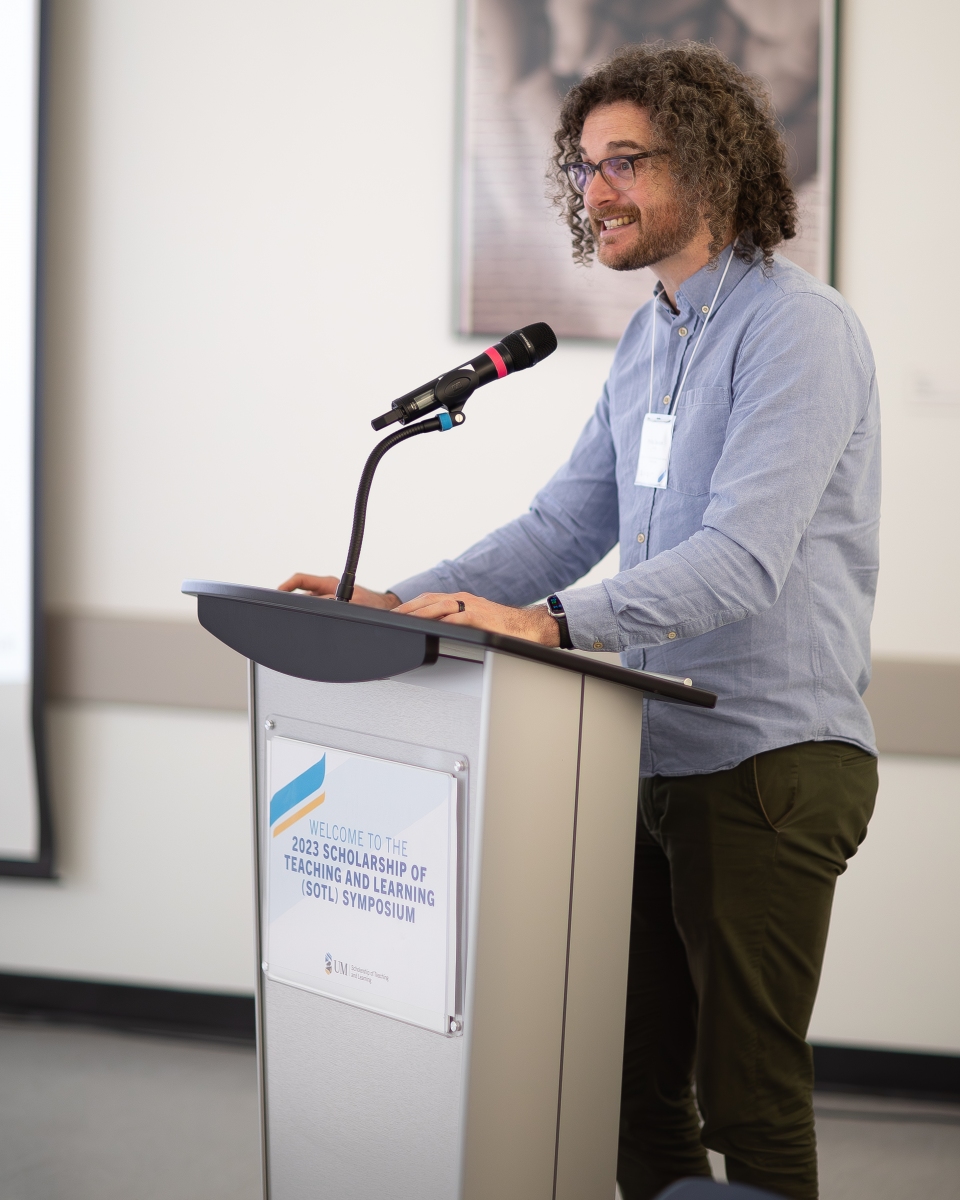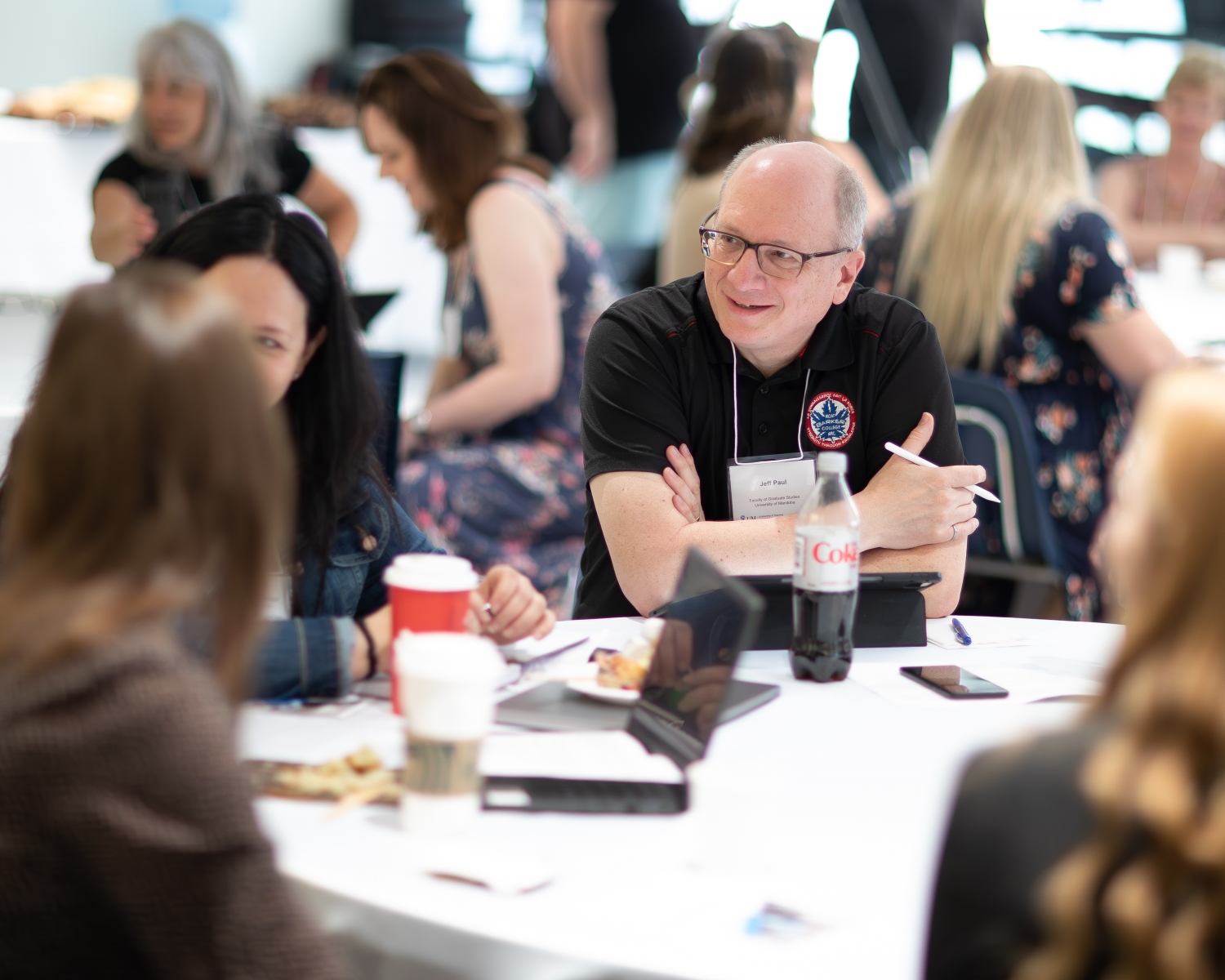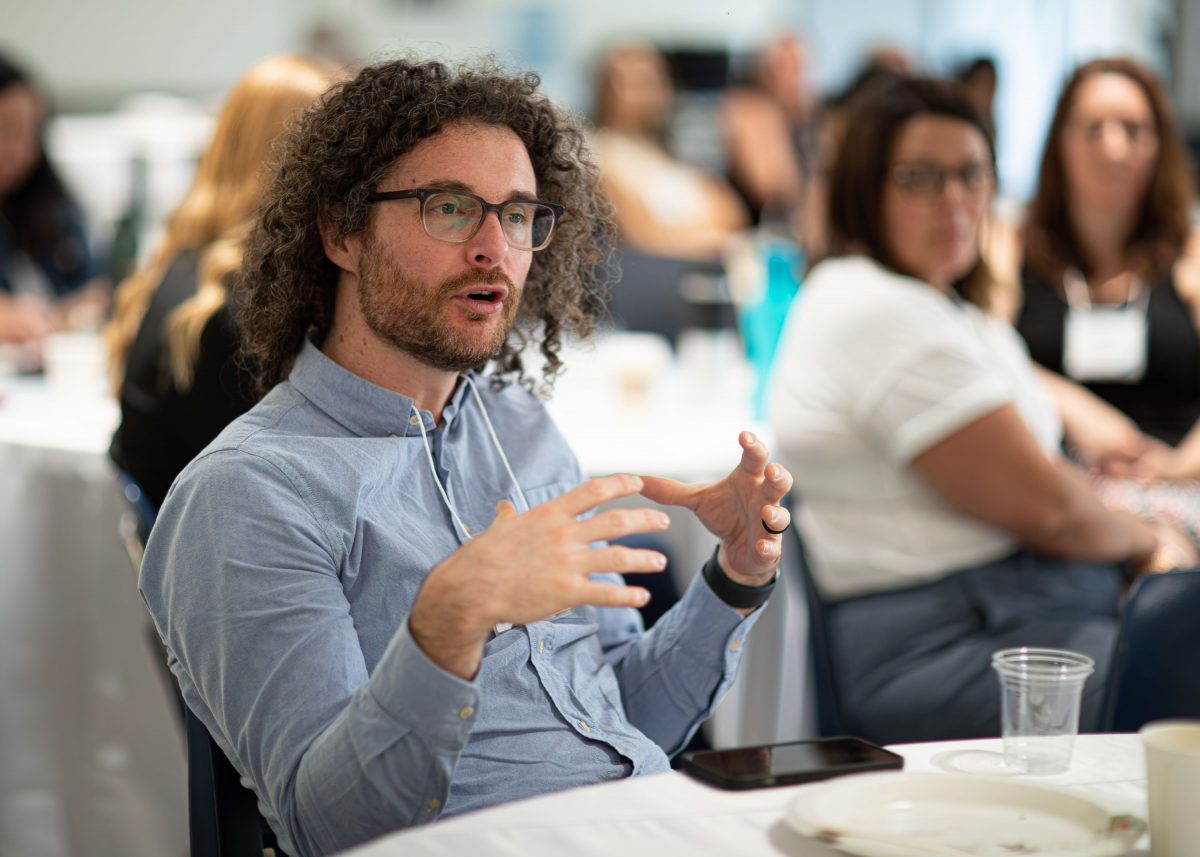
Phillip Dawson, Co-Director, Centre for Research in Assessment and Digital Learning, Deakin University, Melbourne, Australia gave the keynote speech at the SoTL Symposium and led a workshop in the afternoon.
Innovative research is at the core of Scholarship of Teaching and Learning Symposium
UM faculty gather to celebrate and share research that will improve student learning
Energized by the opening keynote speaker, this year’s Scholarship of Teaching and Learning (SoTL) Symposium celebrated the breadth of teaching and learning studies of recent grant recipients and highlighted SoTL research that responds to current teaching and learning challenges.
“Knowing how to do good work isn’t enough,” keynote speaker Phillip Dawson told the audience of UM professors in attendance May 31. “Students also need evaluative judgement—the ability to make decisions about the quality of their own work and others’. This is especially important in a world of generative artificial intelligence.” A recognized expert on assessment and academic integrity from Australia’s Deakin University, Dawson urged attendees to consider assessment as a powerful focus for SoTL research.
Opportunity to investigate one’s teaching practices
Each year, the Scholarship of Teaching and Learning (SoTL) Support Fund provides opportunities for professors, instructors and librarians to meaningfully engage in research projects that increase knowledge in pedagogy and enhance student learning. The SoTL Symposium is an important opportunity for recipients of Major Project and Seed Project funding to showcase their projects and share their findings with the UM community.
“As devoted and caring professionals, we strive for the best learning experience for our students,” said Diane Hiebert-Murphy, Provost and Vice-President (Academic), in her opening remarks. “That’s why systematic inquiry about teaching approaches and practice is a priority at the University of Manitoba.”
Most of the projects presented in this year’s symposium were funded in 2020 and conducted as COVID-19 pandemic restrictions and emergency online learning went into effect. The pandemic also delayed plans for the SoTL Symposium, and this year marks the first time the event has been held. “Dissemination is a key component of SoTL research, and we finally have the opportunity to share these important findings with the UM community,” said Janet Cape, a SoTL Developer at the Centre for the Advancement of Teaching and Learning. Cape says that plans are underway for an expanded SoTL Symposium in 2024, which will include a day of workshops and welcome SoTL researchers from across Manitoba.
The results of three Major Projects and eight Seed Projects were shared at this year’s symposium. Here are some highlights.
Major projects span disciplines
Hagar Labouta was curious about how best to foster the development of interdisciplinary skills among students trained in different natural science research disciplines. She examined the experiences of research assistants in her nanoscience laboratory and found that clear communication, mentorship and teamwork were essential components of learning interdisciplinary nanoscience research.
Kathryn Levine observed that while social workers, educators and school psychologists work to help children in care of the child welfare system to achieve greater academic success, these professionals have limited knowledge of each other’s mandates, values and ethics and roles and responsibilities. The Major Project funding she received led to the development of a unique interdisciplinary course that brought together educators and social workers to explore how children can be better supported within a framework of collective responsibility.
Jillian Seniuk Cicek and Jeff Paul explored the efficacy of educational tools developed to facilitate “just-in-time” instructor training and examined the impact on STEM students’ engagement, motivation and retention. Among the interventions that they developed, Cicek and Paul created PowerPoint templates that provided pedagogical “nudges” to help faculty incorporate research-based teaching practices.
Seed Fund projects lead to student growth
After learning about mastery-based grading at grading conferences and in research articles, Xinli Wang waited until she had a small enough second-year mathematics course to explore the concept properly. The mastery-based grading was more intensive for Wang, but it provided added benefits for her students. “Because we don’t use points, we have the time and space to allow for failure and growth,” Wang shared. “Each student’s grade is based on the evidence that they can eventually provide of mastery, rather than a one-time all-or-nothing exam score that may or may not measure their true knowledge at the end of the semester.”
Celine Latulipe knows the benefits of team-based active learning approaches and proposed to evaluate a system for implementing these approaches in classroom spaces designed for traditional lecturing. When the pandemic disrupted her plans, she quickly pivoted to examine active learning in online spaces. She found that Gather.Town—a 2D virtual world platform—provided “a sense of place” that felt like a real classroom, allowing her students to socialize and move easily between full class discussions and group work. “Overall, Gather.Town allowed students to feel socially more connected to their peers while learning online in a way that general-purpose video conferencing tools such as Zoom did not, which is critical for inclusive learning,” says Latulipe. The tool has since been adopted in other UM classes in Computer Science, Biological Sciences, and Physics.
Julie Pfeffer wanted students to stop using questionable online digital resources to gain an understanding of practical lab situations in dentistry. She explored providing students with two versions of video tutorials: one that was infused with humour throughout and one that was a matter-of-fact procedural. She was surprised to find that students appreciated both – they liked the humourous video as an introduction to the topic and the matter-of-fact video to review important details. Unsurprisingly, her students wanted more of both of her high-quality videos.
Have an idea for SoTL funding?
The Scholarship of Teaching and Learning Support Fund provides grants for a variety of projects every year.
Seed Projects of up to $6,000 examine factors that influence student learning and include SoTL research questions related to how instructors can use various teaching methods and technology to strengthen their teaching practice.
Major Projects of up to $25,000 support SoTL research initiatives that influence student learning that are interdisciplinary and often span across faculties, colleges, or schools.
For further information about the Scholarship of Teaching and Learning Support Fund and other supports, visit the Academic supports for faculty web page.
To work with a Scholarship of Teaching and Learning Developer on your SoTL project, contact The Centre for the Advancement of Teaching and Learning at thecentre@umanitoba.ca.







